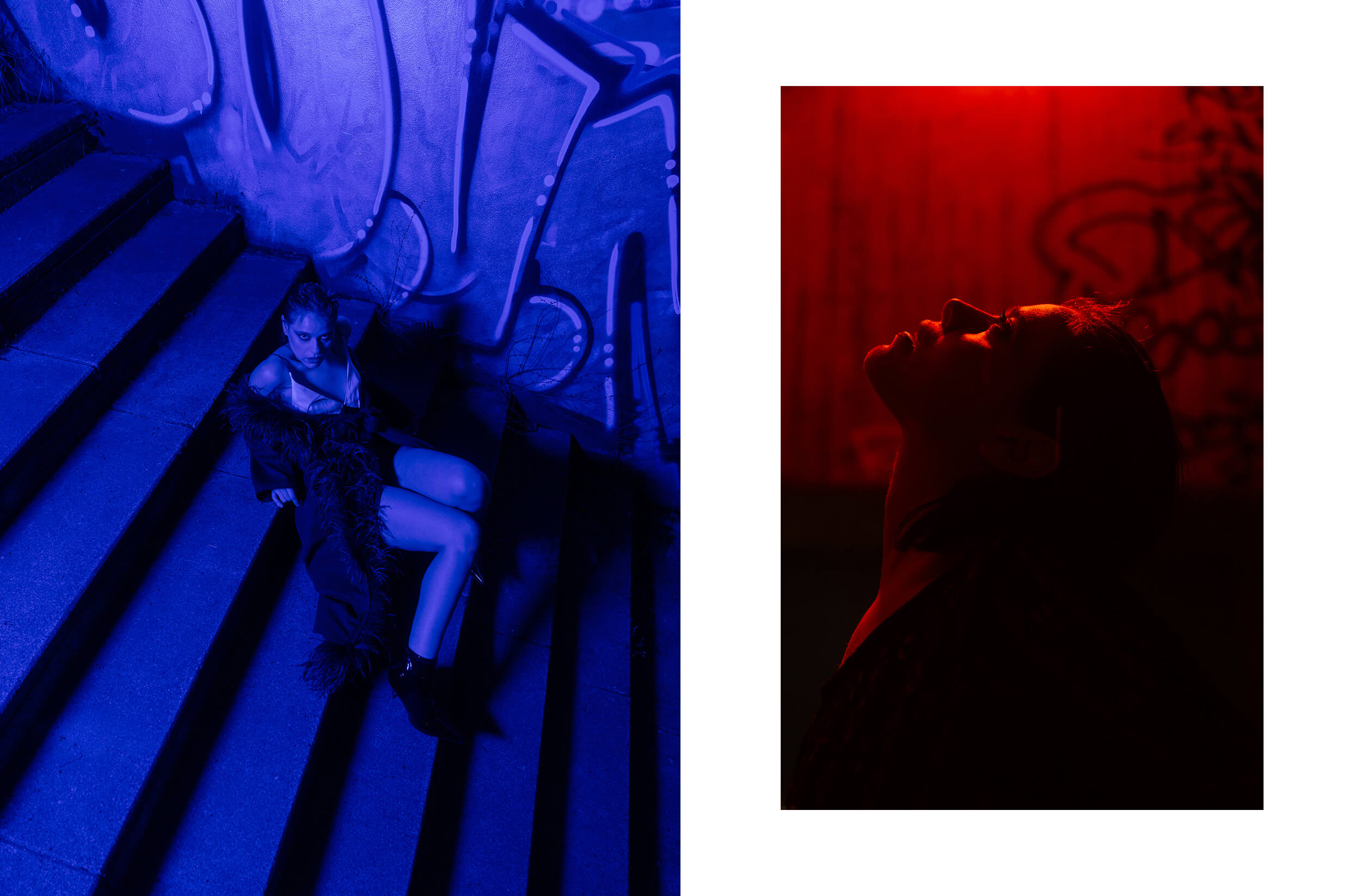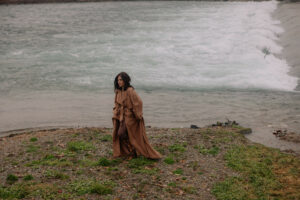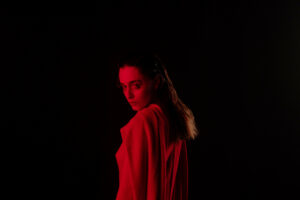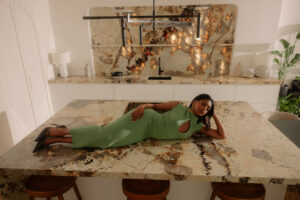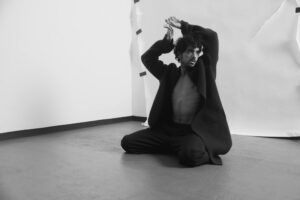With a career that began almost by chance and a passion discovered over time, Giorgia Faraoni has established herself as one of the most intense and authentic emerging actresses on the Italian film scene. Starring in Rossella Inglese’s film “L’origine del mondo”, Giorgia shares with us her journey into the world of acting — a path marked by courage, self-discipline, and a deep connection with her characters.
During our conversation, Giorgia opened up with great honesty, retracing the steps that led her to choose cinema as a means of expression and personal transformation. From discovering her love for acting to the catharsis brought on by playing the role of Eva, from the challenges faced on set to her desire to explore writing, Giorgia offers us an intimate glimpse into her journey and her vision of art.
What is your first memory related to cinema?
I’m not one of those people born with the dream of becoming an actor or actress. I came to cinema very late because I was looking for a way to express myself.
I attended a scientific high school and during that time I got stuck in a toxic relationship. Back then, I struggled to define my boundaries, to assert my time and space, so I clung to people in all aspects of my life, and I had never stopped to ask myself: “Who are you? What do you want to do?”. This relationship lasted from when I was 17 until I was 23, and once single, once I had processed the pain of the first breakup, the end of first love, I looked for a way to express the anger I had inside, my desire to explore. I started with singing, but it wasn’t really my calling [laughs], rather, I preferred writing poems and songs, which made me realize that something inside me was stirring. Then, I met someone who worked in the music industry in Milan, who told me he had noticed that I had a lot inside me and asked if I had ever tried acting. I thought that at 23 I was already too “late” to start acting, I had never studied and knew nothing about cinema. He, however, told me: “It doesn’t matter, if you have this thing inside you, that’s what makes the difference.”
After that conversation, I auditioned for a music video and they hired me right away. From that moment, I started watching films: my first love was Tarantino.
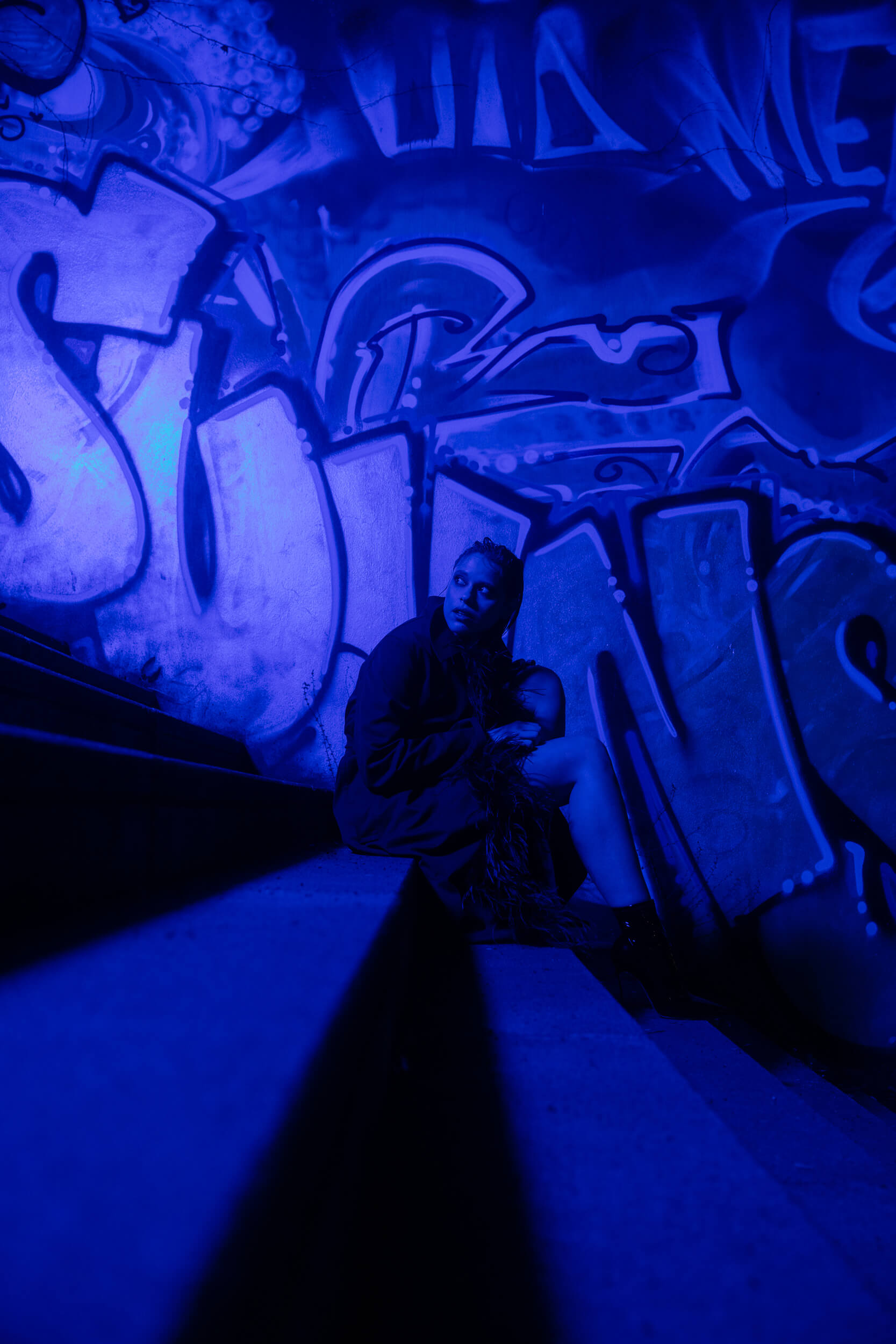
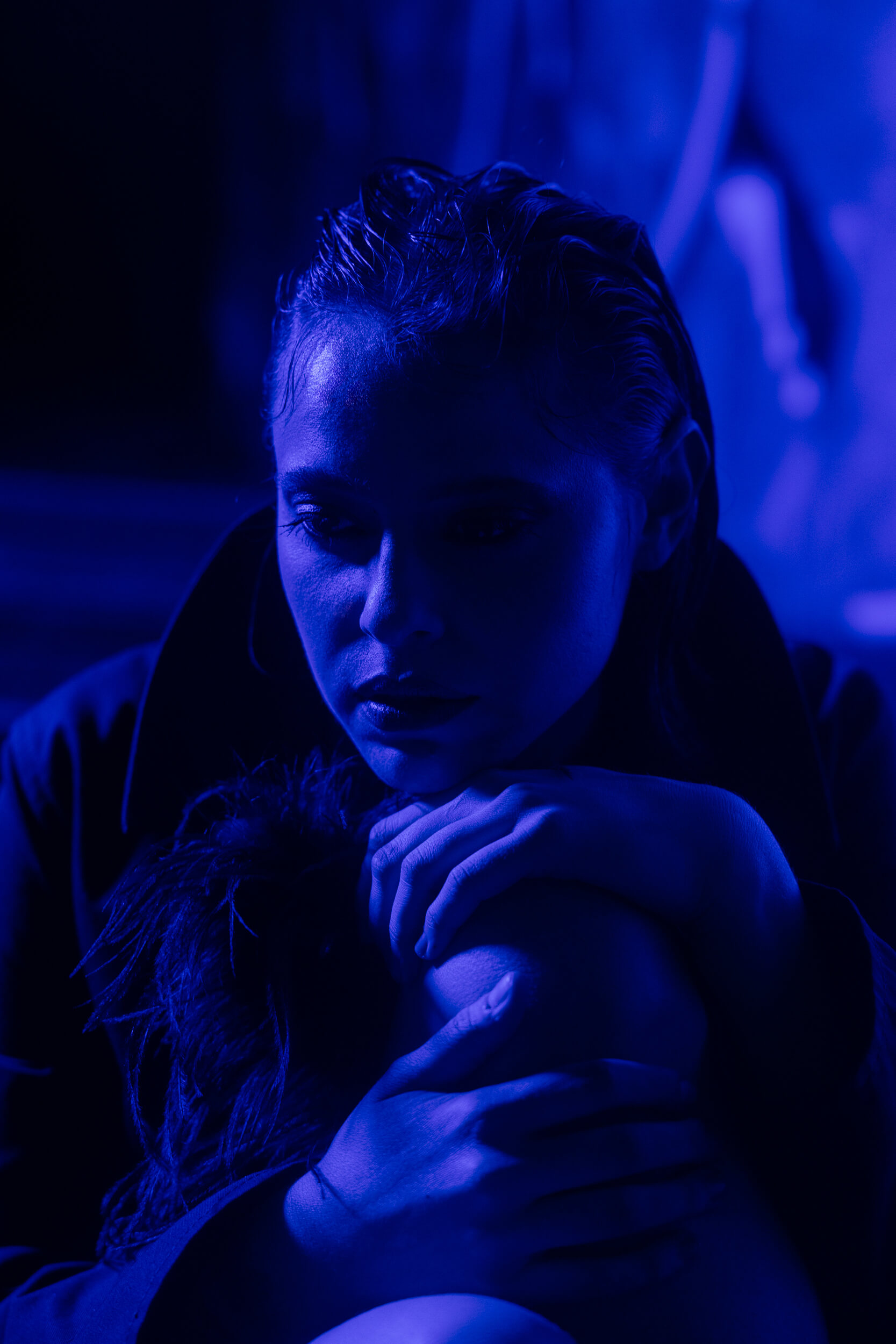
The “fortune” of becoming passionate about cinema as an adult is that you can start by going straight to the point, not with Cinderella and Robin Hood, but with Tarantino!
Exactly! [laughs] Then, on one hand, I consider myself lucky because, not having clichés in mind, predispositions, I can act in a “different” and unique way, because having no material to draw from I can only draw from myself, which has played in my favor for the first auditions I did. You know, when something is raw, it’s beautiful and easy to shape. Many people tell me today, “You’re more beautiful when you act” and it’s true, because all of us in life wear masks to hide our truth: with my mask, I seem strong, boisterous, funny, but inside I have a very fragile soul that comes out on stage, because in front of the camera I can allow myself to be fragile without fear of being judged.
This is the great fortune of my work, which for me is therapeutic.
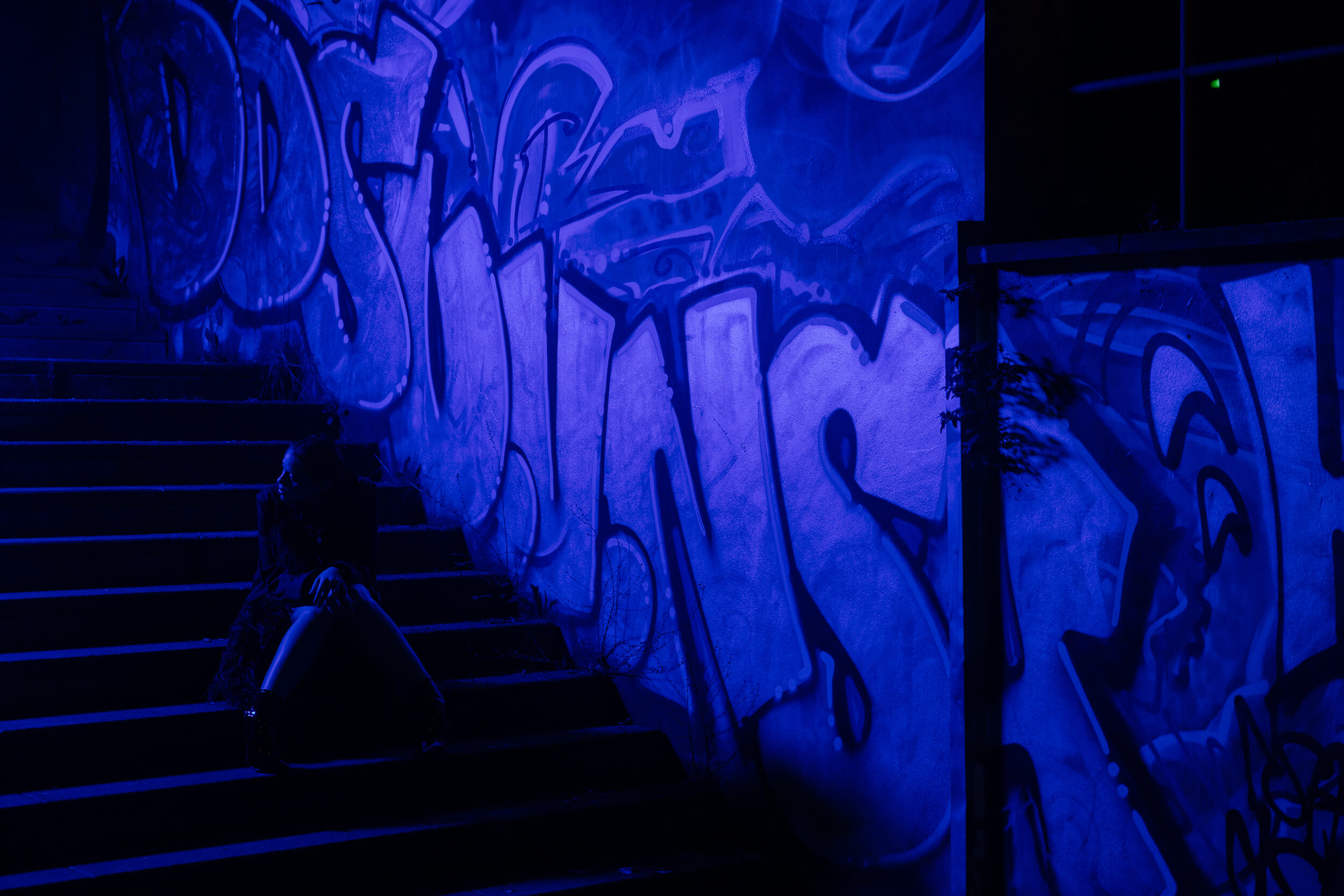
“You know, when something is raw, it’s beautiful and easy to shape.”
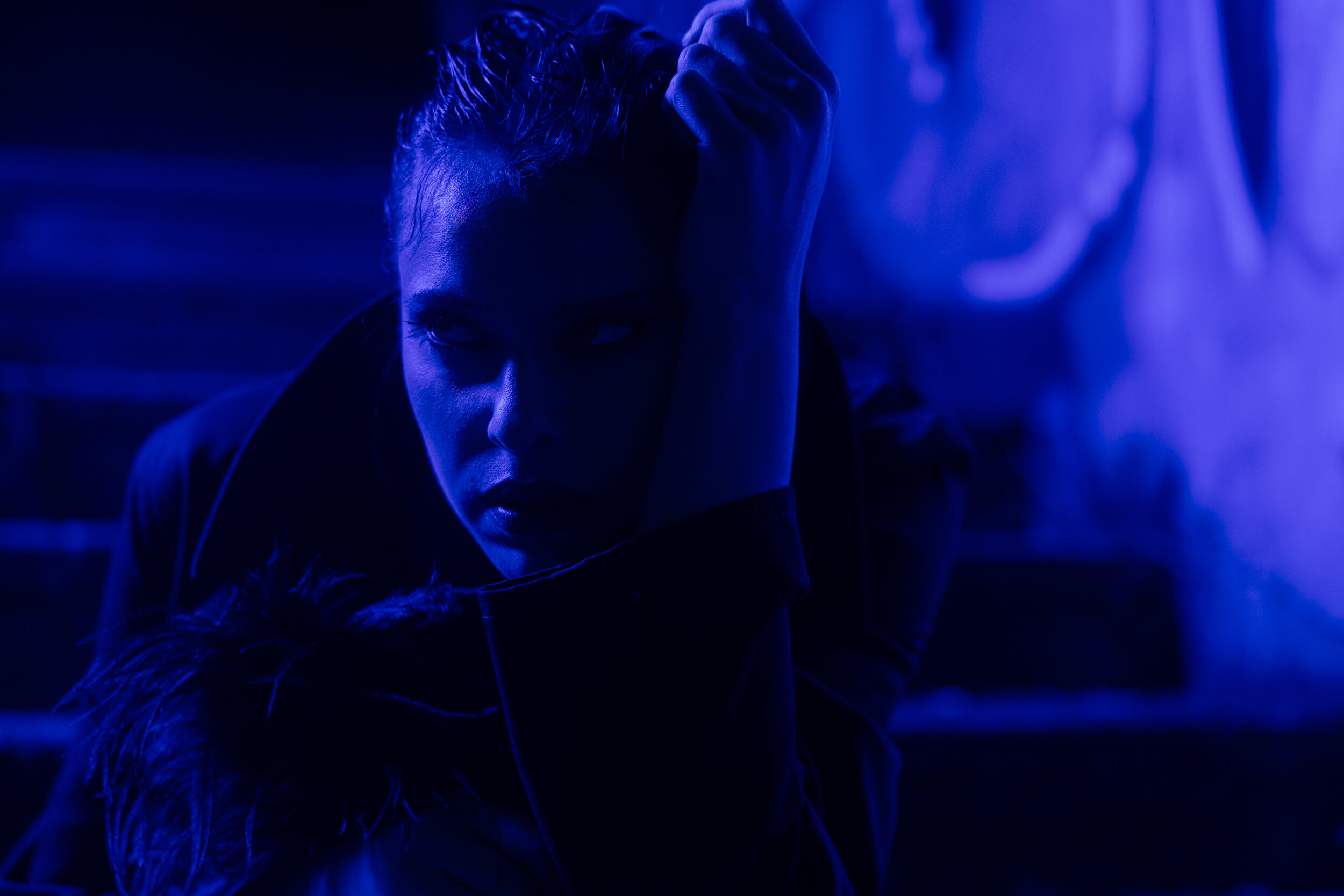
What was your first reaction after reading the script for “L’origine del mondo” (The Origin of the World)?
At first impact, I hated it. I judged my character a lot, because she’s a girl who cheats by going with her friend’s boyfriend, causes an accident and kills someone, gets involved with her husband, basically doesn’t do anything right [laughs]. Upon deeper reading, though, I understood that the film is all about guilt, so I focused on studying the character to try to understand why she does everything she does: I cared about stopping judging her, empathizing with her, and going deep to understand all her choices. All of us, especially when very young, make right or wrong choices, and at least she had the courage to evolve, to become an adult woman, which inevitably leads to hurting some people, unknowingly, and doing good to others, in my opinion. I tried to work on her suffering, which led her to act that way, and on the strength she discovered she had, which taught me a lot.
This role, in fact, came at a particular time in my life, and changed many things in me: Eva taught me to have the courage to be free from myself, from my prejudices, and to accept life as it is, with the awareness that one can make mistakes, but the important thing is to get back up.
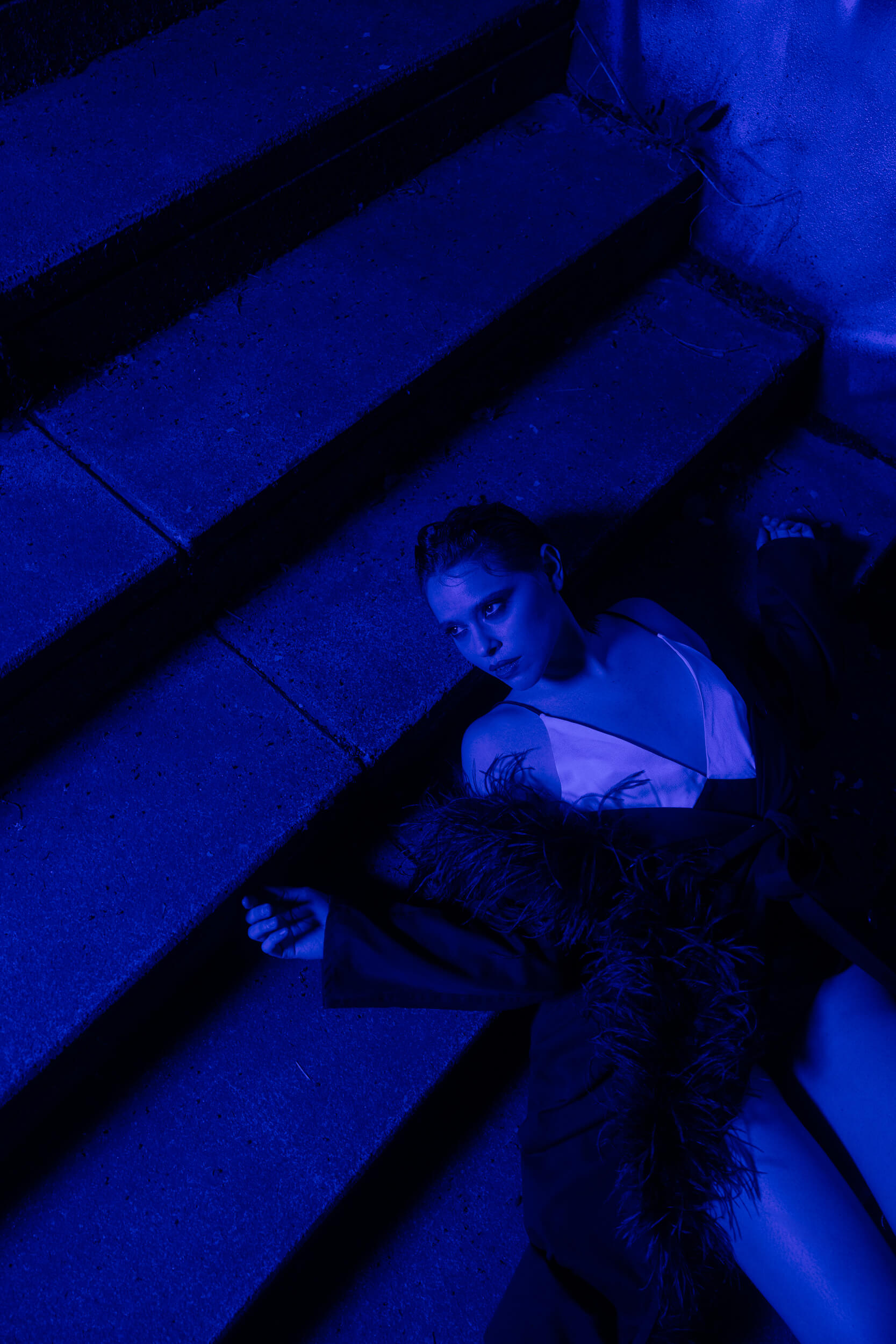
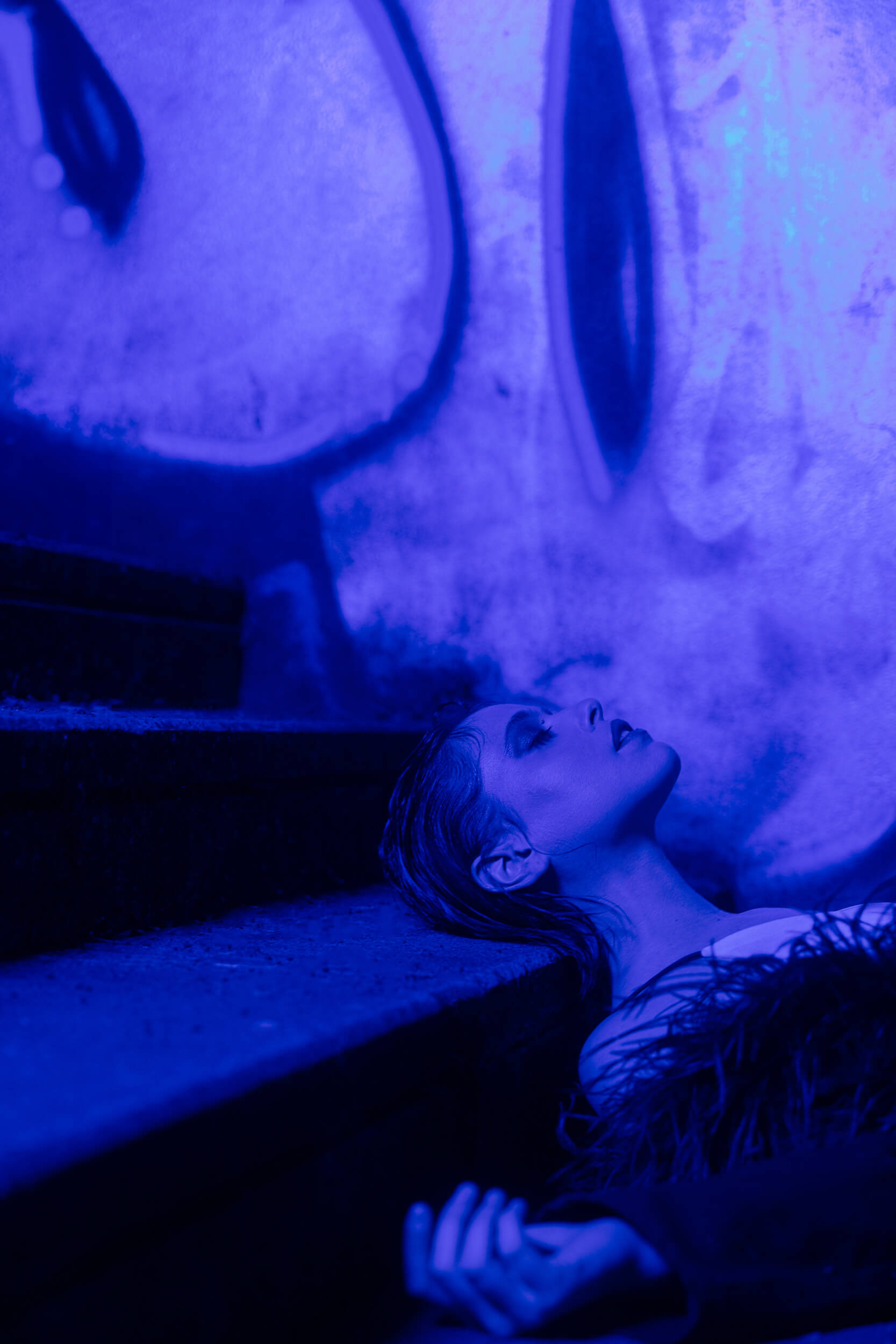
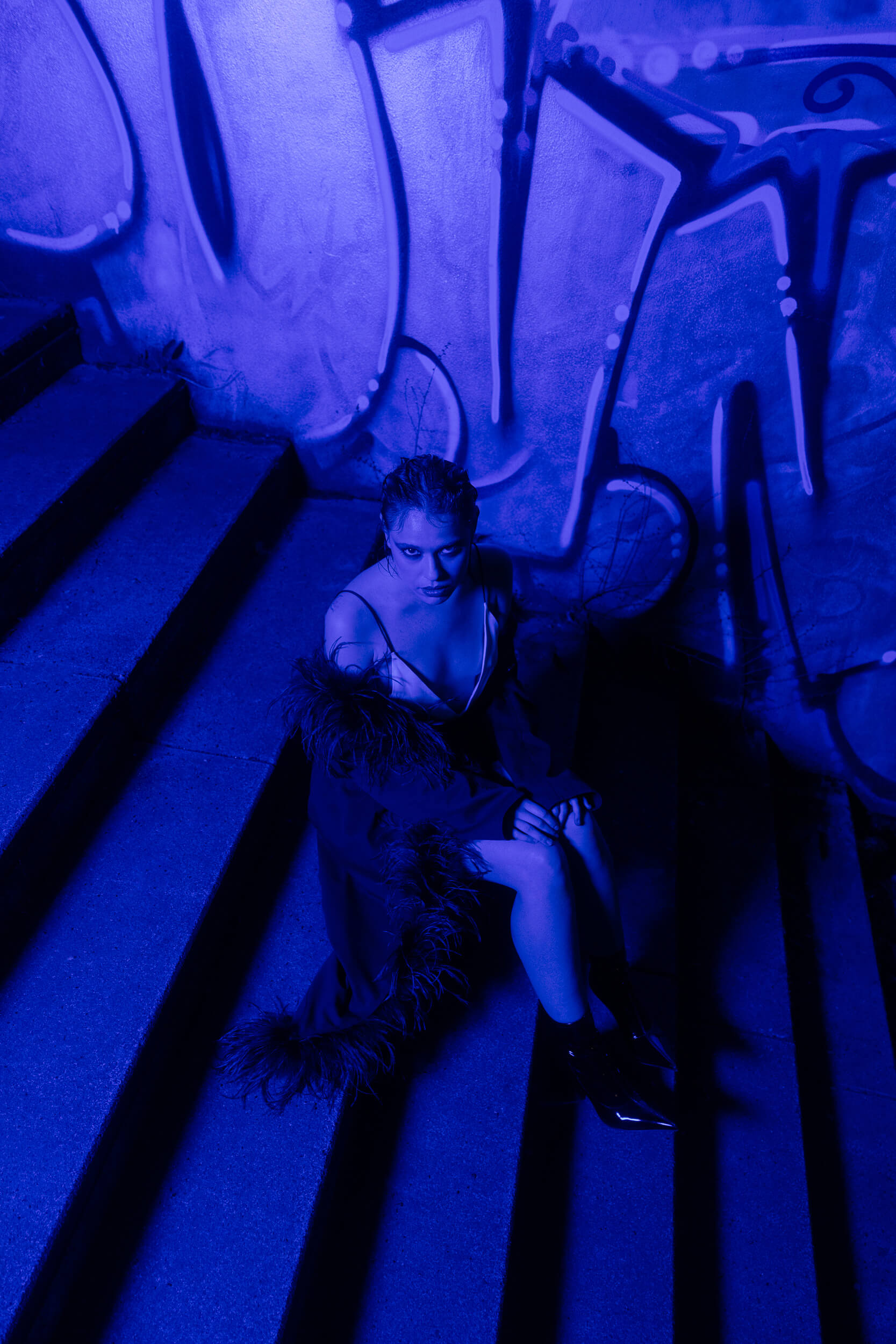
As you were saying, the film explores the theme of guilt and the search for forgiveness. How did you experience the moments on set and off set during the shooting period emotionally?
Not having a technical background, I did things a bit my own way. Obviously, I am not Eva, so the things that happen to her didn’t happen to me and I was always aware of that. With my characters, however, I always try to find a common denominator between them and myself, because I think it’s important to bring a side of myself on stage to be authentic. With Eva, I found a common point in her suffering: during that period, I had experienced a sudden loss, so I was also suffering a lot like her, I also felt a great sense of guilt because I wondered, “What could I have done more or differently?” So, I did a lot of inner work, a bit destructive but also cathartic, because it helped me get through that painful period. The pain that Eva feels, in short, is my pain, and that’s also why I do this job, because otherwise I would have suffered in vain; instead, I made my pain my strength and my art and I gave it to people. It reaches some people, it doesn’t reach others, but even if it reaches just one person, then it means I didn’t suffer for nothing. I like to put my whole soul into my work, that’s why I can’t tell you what it means to get out of character: for all two months of shooting, I felt like Eva and I wanted to protect her and keep her inside me the whole time. I like to work that way.
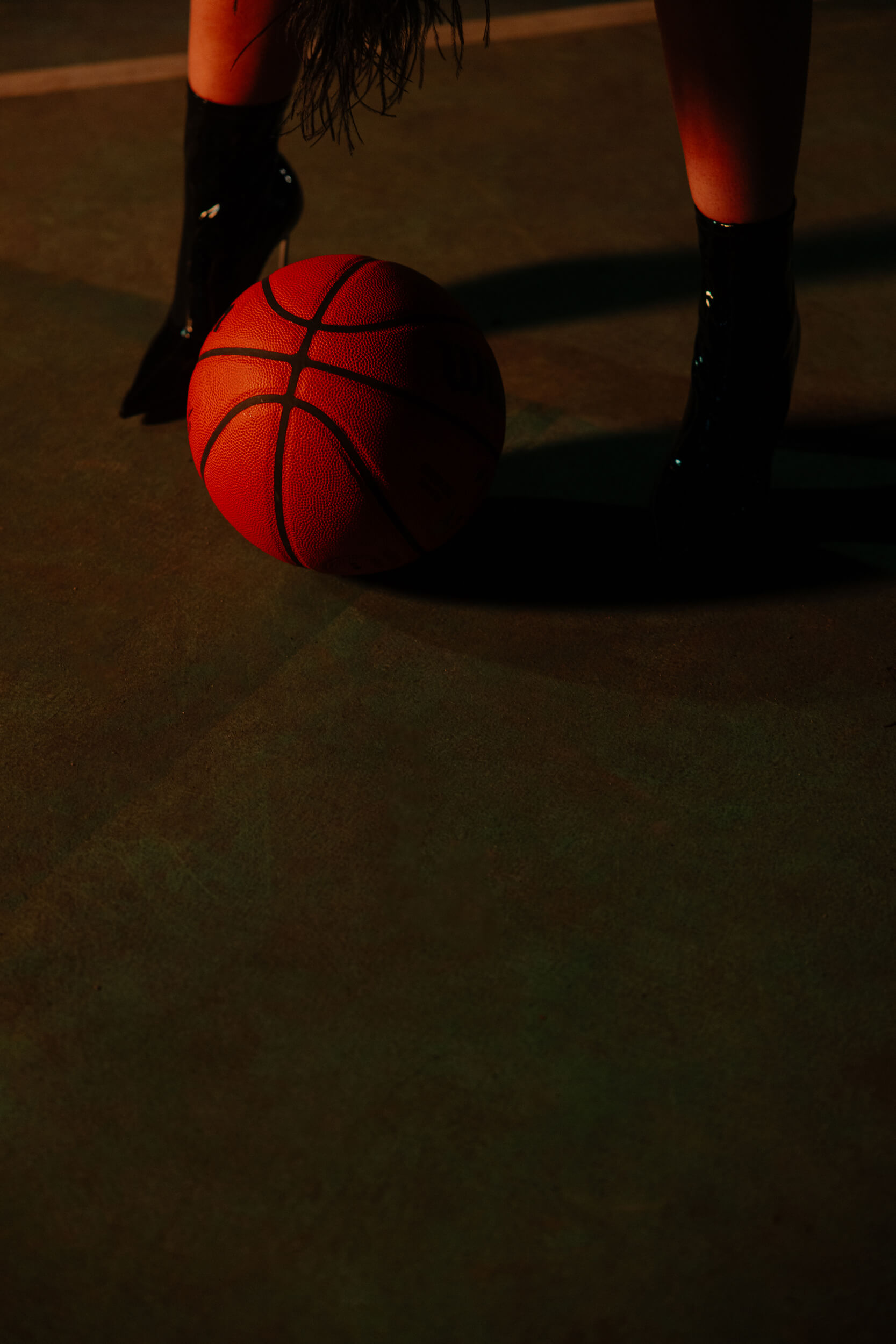
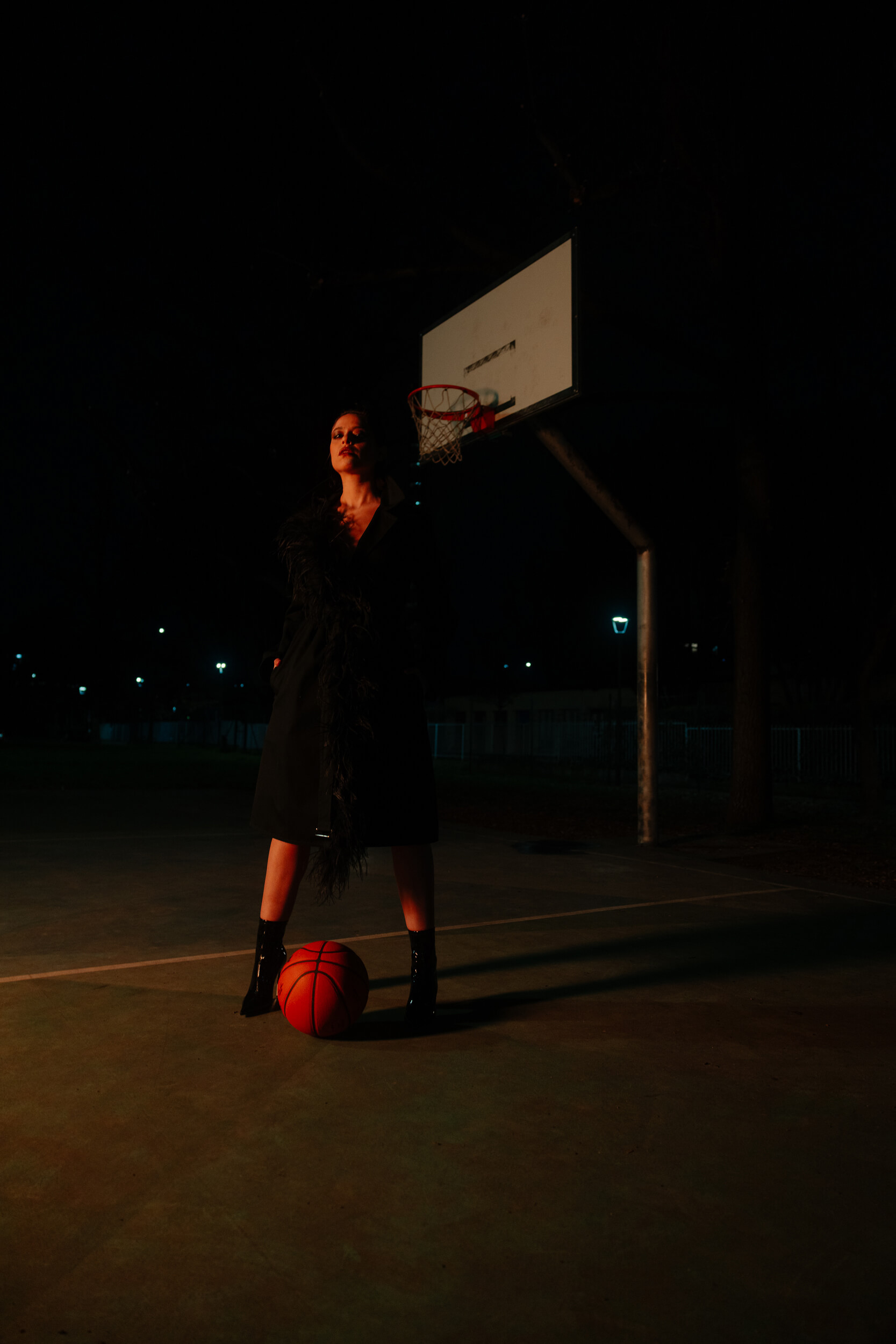
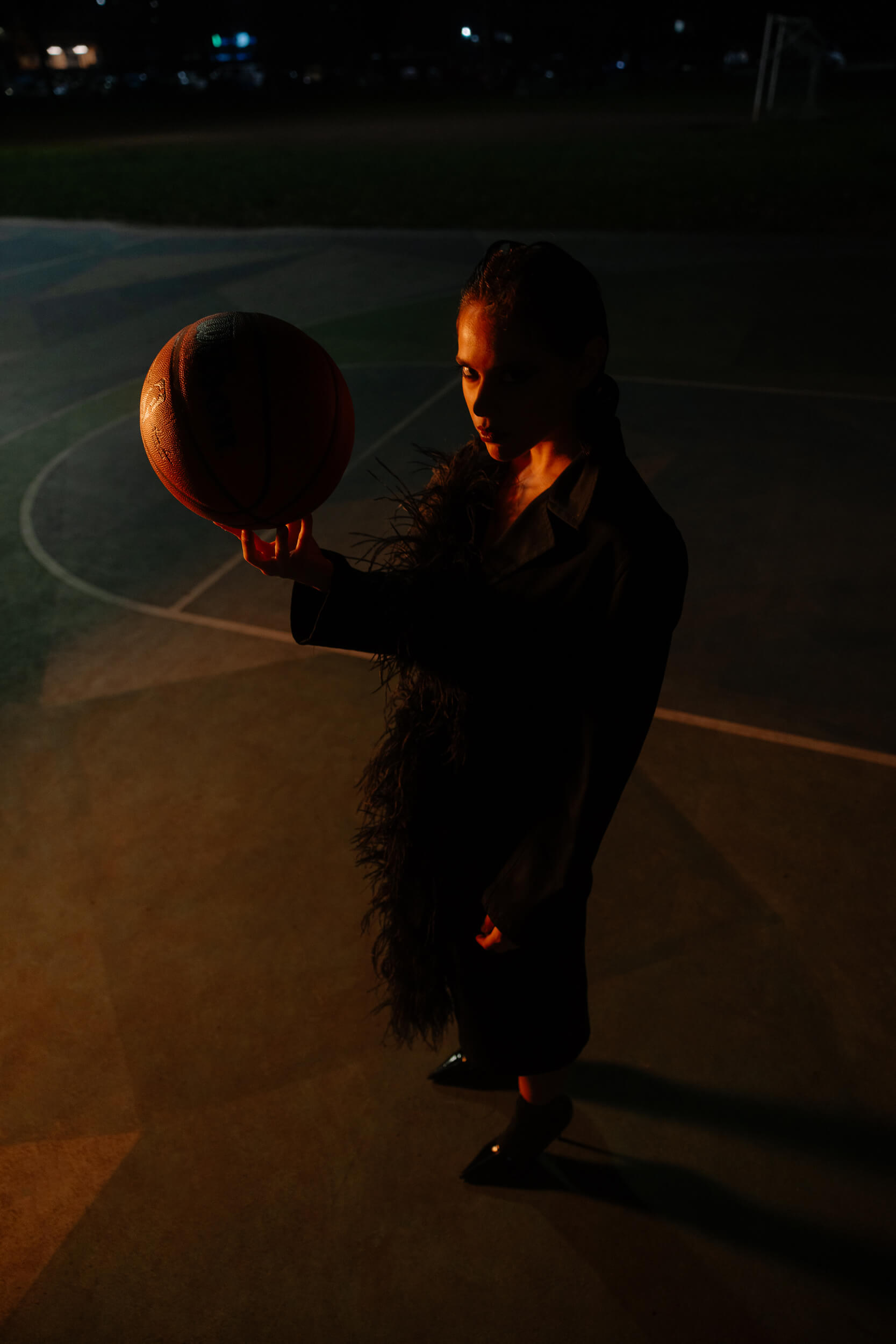
“I made my pain my strength and my art and I gave it to people”
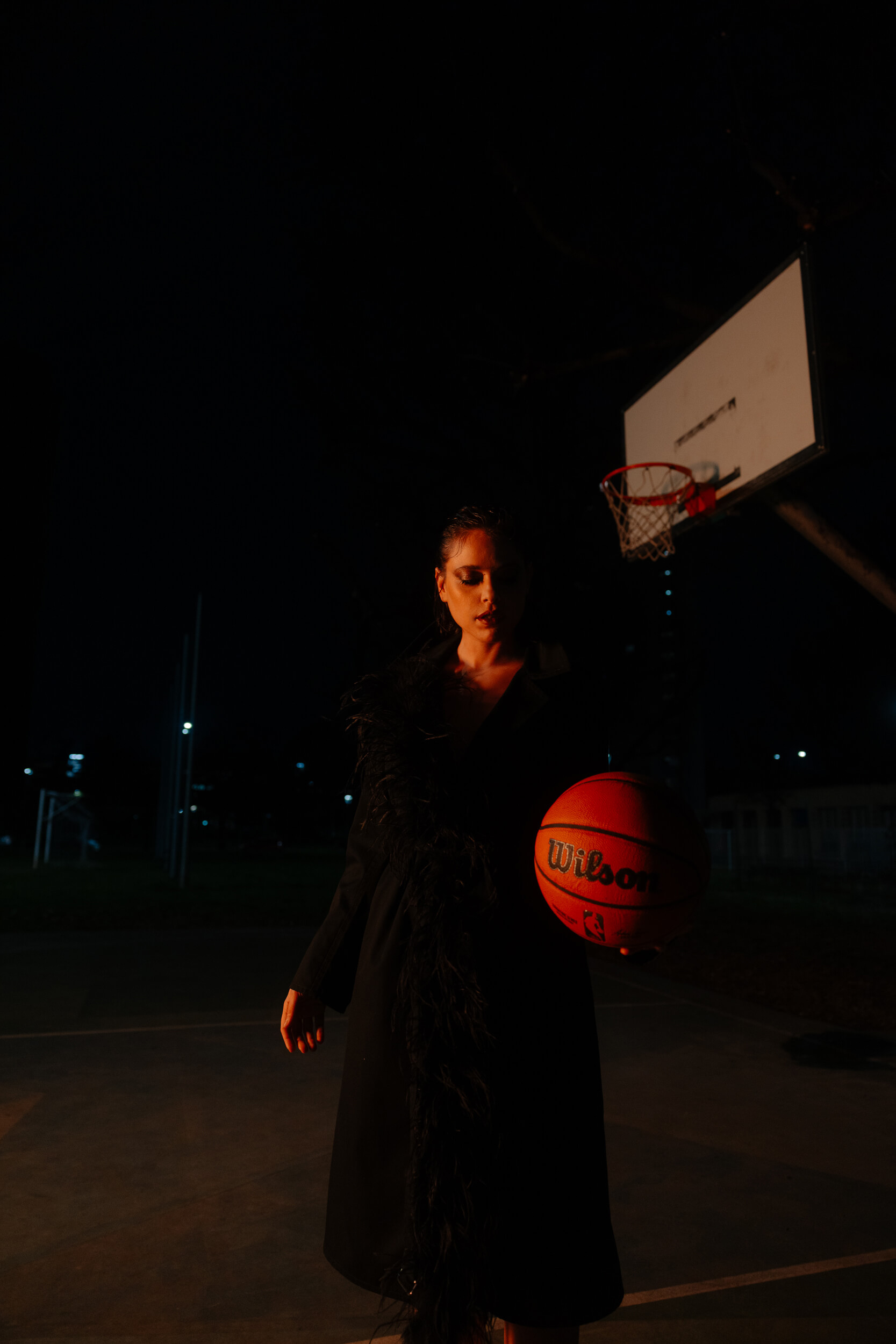
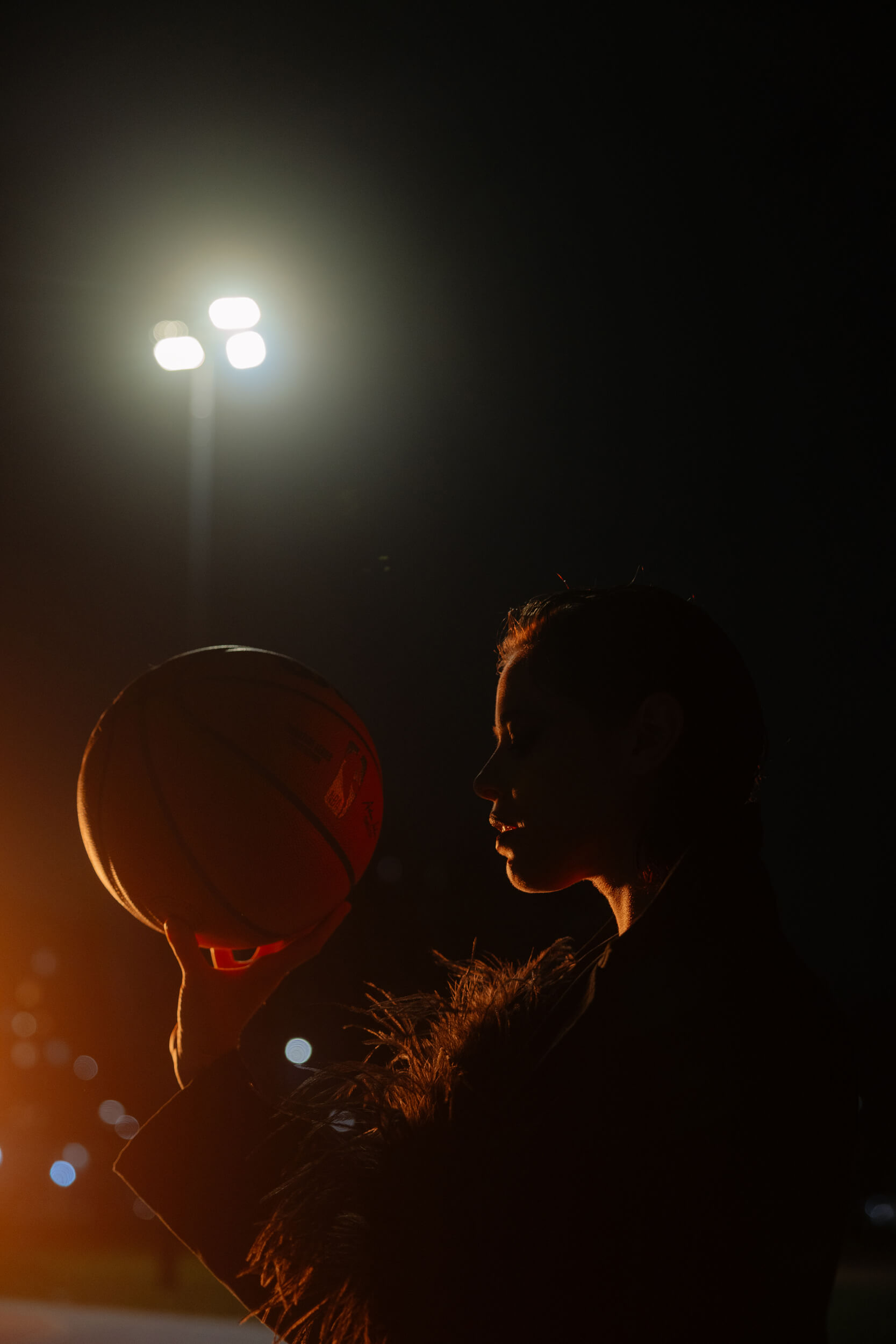
The relationship between Eva and Bruno is intense and morally ambiguous. How did you work with Fabrizio Rongione to build this dynamic on screen?
First of all, Fabrizio is a very well-known actor, especially in France, he has done almost all the Dardenne brothers’ films; for me, instead, it was my first leading role. At the beginning I was very intimidated, in fact, I wondered if I was up to it. But, fortunately, he was great, very professional, very sensitive, he has a beautiful soul. Actually, we tried not to bond too much beforehand, we did few rehearsals, because I wanted to maintain that awkwardness, that feeling of “I don’t know you,” because if we had bonded too much beforehand we wouldn’t have conveyed the idea of “tiptoeing” into each other’s lives.
Speaking of the most difficult scene, then, the sex scene, at that moment the crew was super reduced and with the director we did many rehearsals, exercises to loosen up, and Rossella [Inglese] was great, she made me feel very comfortable. Among other things, I had already worked with her.
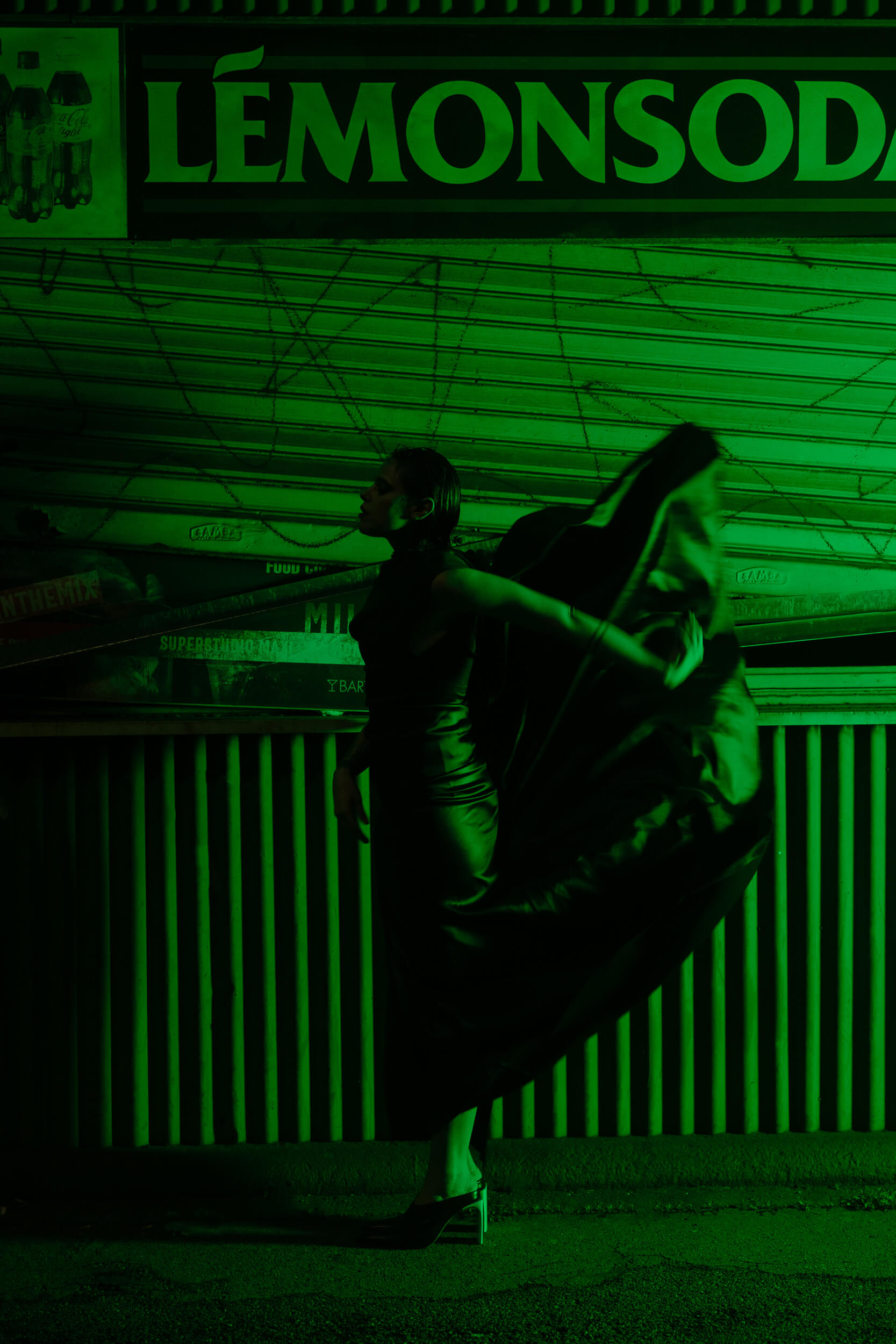
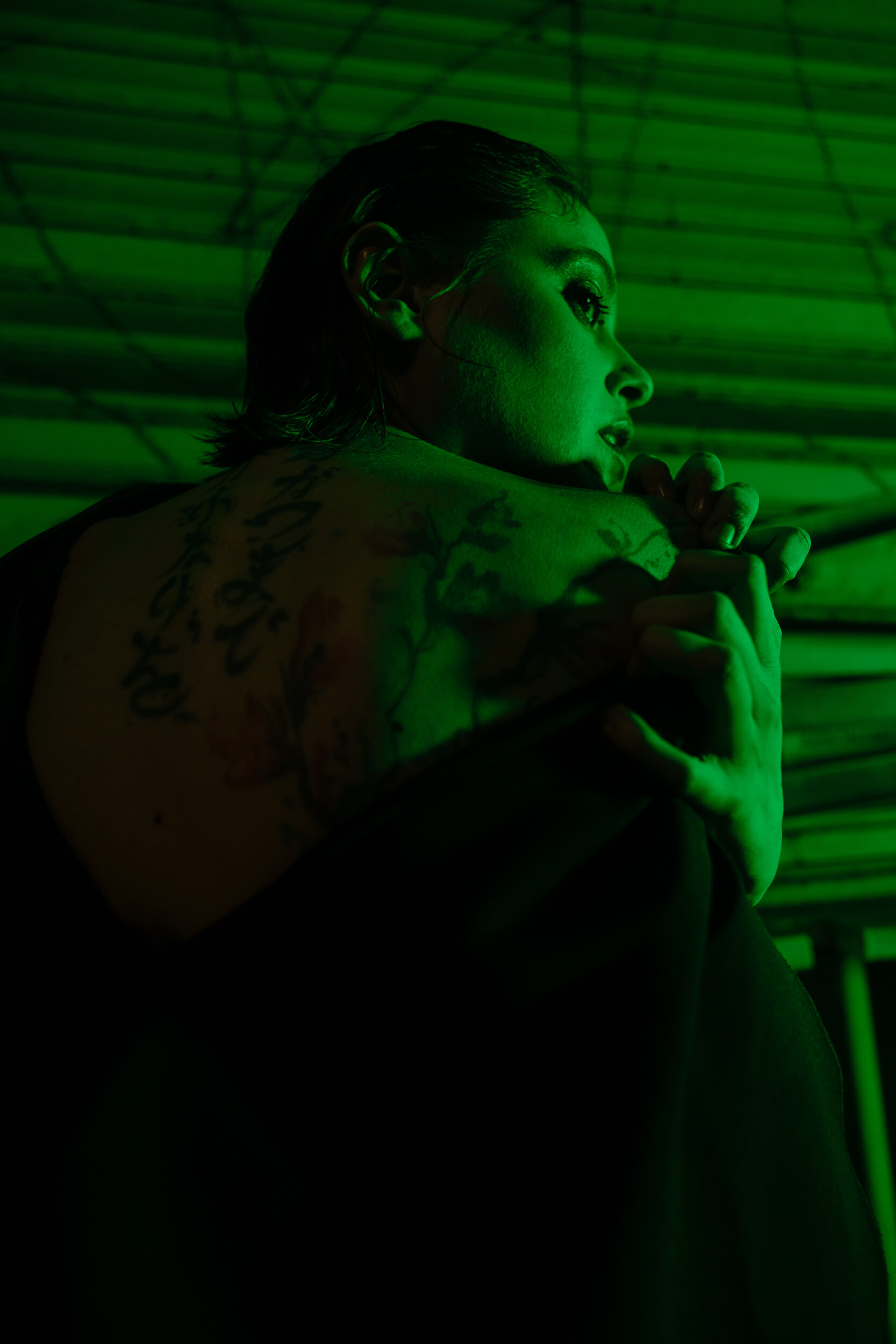
A short film, right? “Eva,” precisely.
Exactly. With her I immediately got along very well, I quickly connected with her poetic nature and delicacy in telling even difficult things. So, on the set of “L’origine del mondo,” already knowing her and her way of working, I immediately felt comfortable: everything was magical, we really felt suspended in another atmosphere.
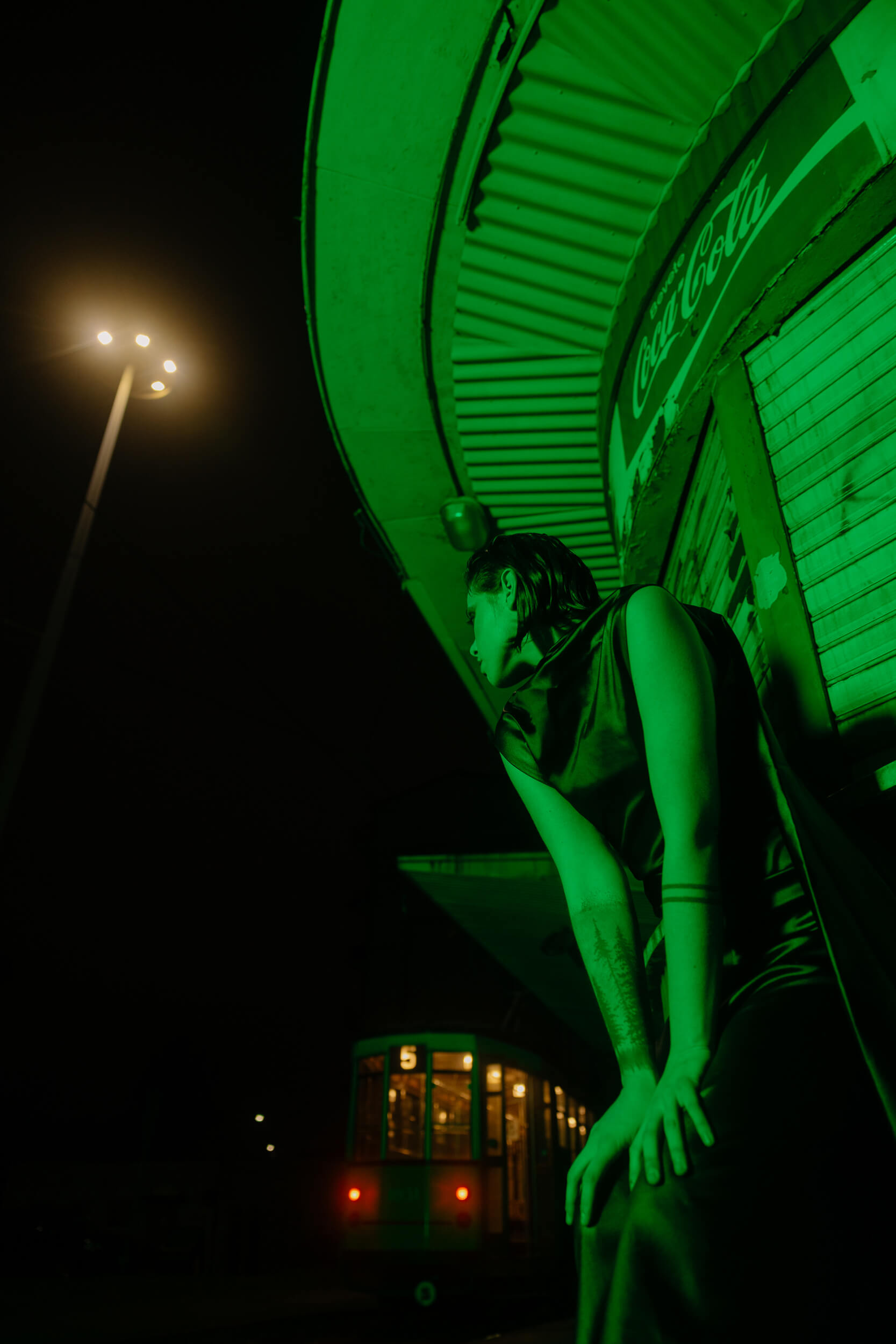
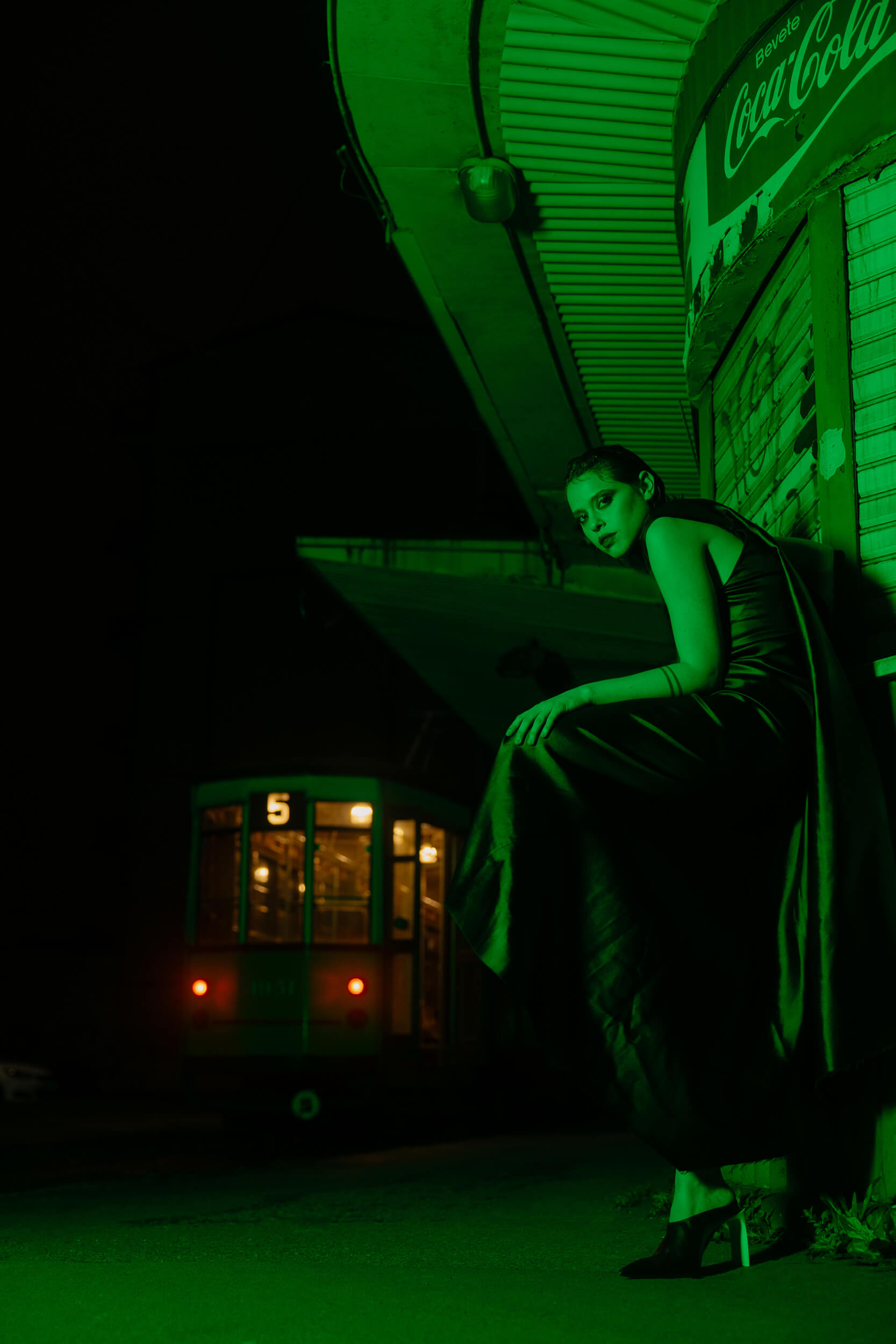
The film tells a story of loss and redemption. What do you hope the audience will take away after seeing it?
You know, I worked a lot on the ending, which might seem like the simplest thing, because there are no lines, but it wasn’t exactly like that from the other side of the screen. During the last scene, I thought: “What do I want to get across?” The answer I gave myself was: the whole journey I made together with Eva, also through my experiences, my pain.
Eva’s story is the story of a girl who somehow tries to become a woman, the story of two souls who meet, who have both suffered, and the fact of finding oneself in the other’s suffering somehow alleviates the wounds, despite everything, and the two manage to grow together. I hope the message of hope has come across, hope in others, hope that life always puts people in front of you who somehow serve a purpose for you and that we are not alone in suffering, because there is always someone else who suffers. And that often giving instead of taking alleviates your suffering: if we can “give more,” things then go better. I would really like the audience to get that hope that I felt after that whole journey, which for example wasn’t there at the beginning of the film.
I, absurdly, the more chaos and confusion I made, the more I found my way, so the message is that you have to have faith in what life puts in front of us.
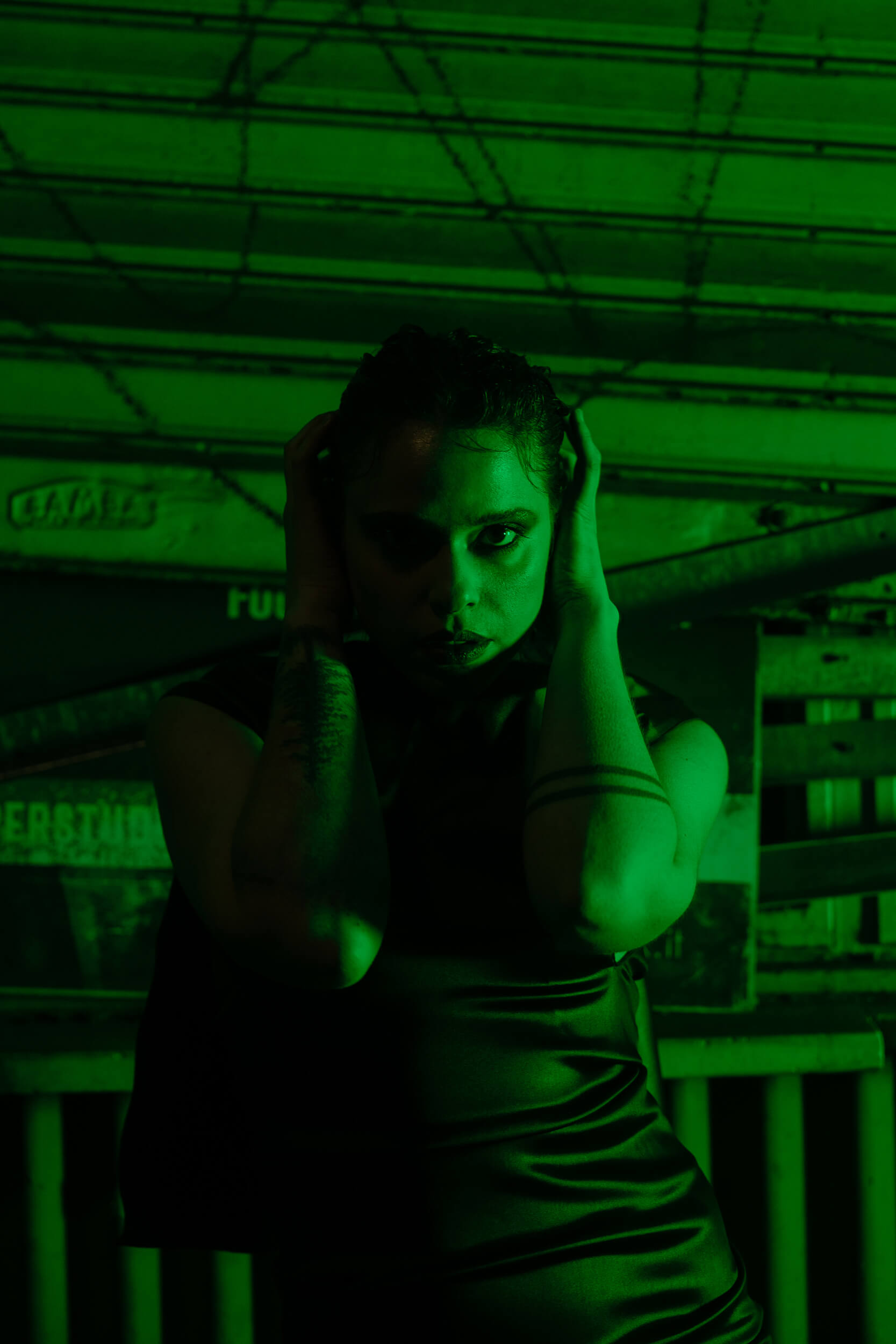
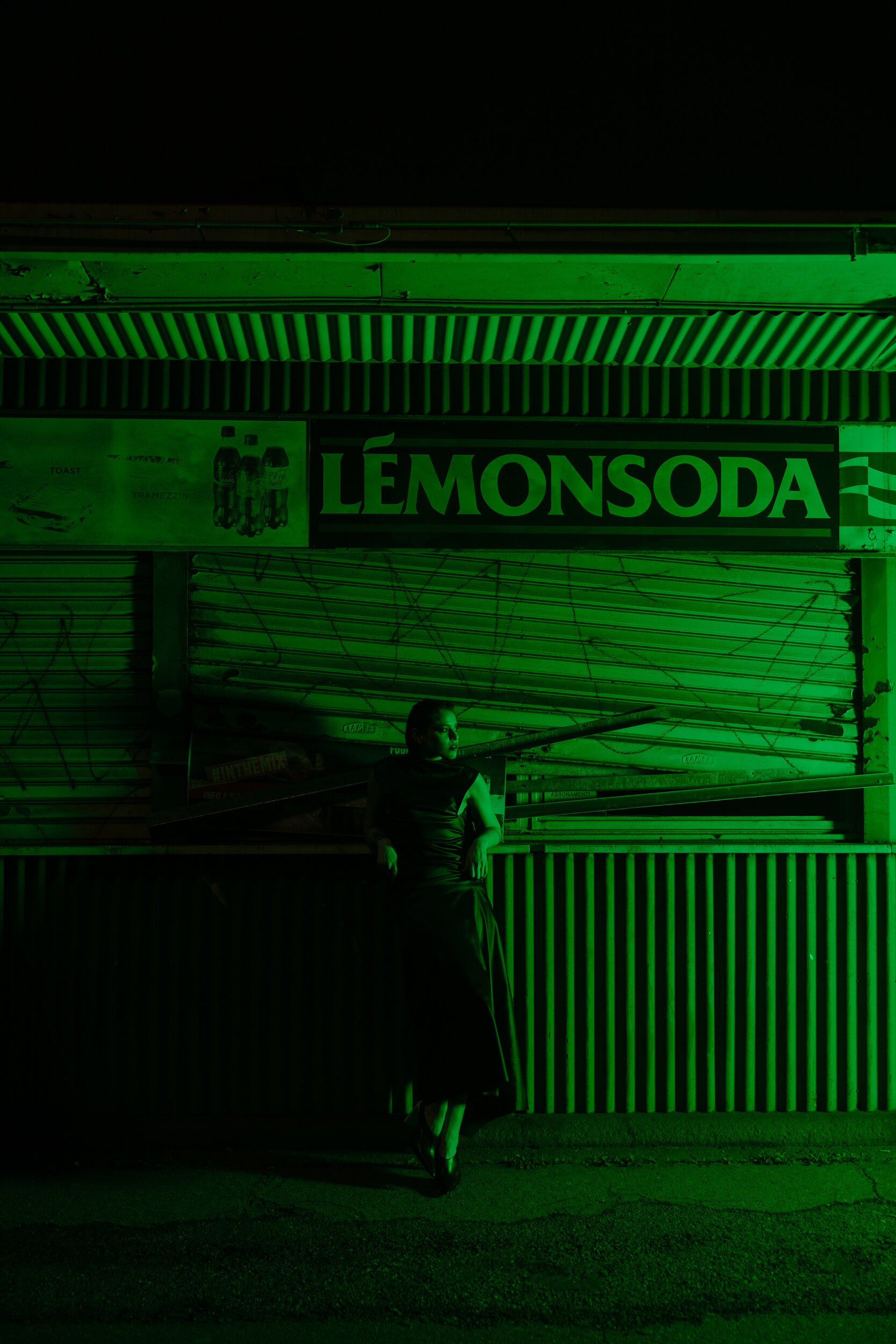
“Often giving instead of taking alleviates your suffering: if we can ‘give more,’ things then go better“
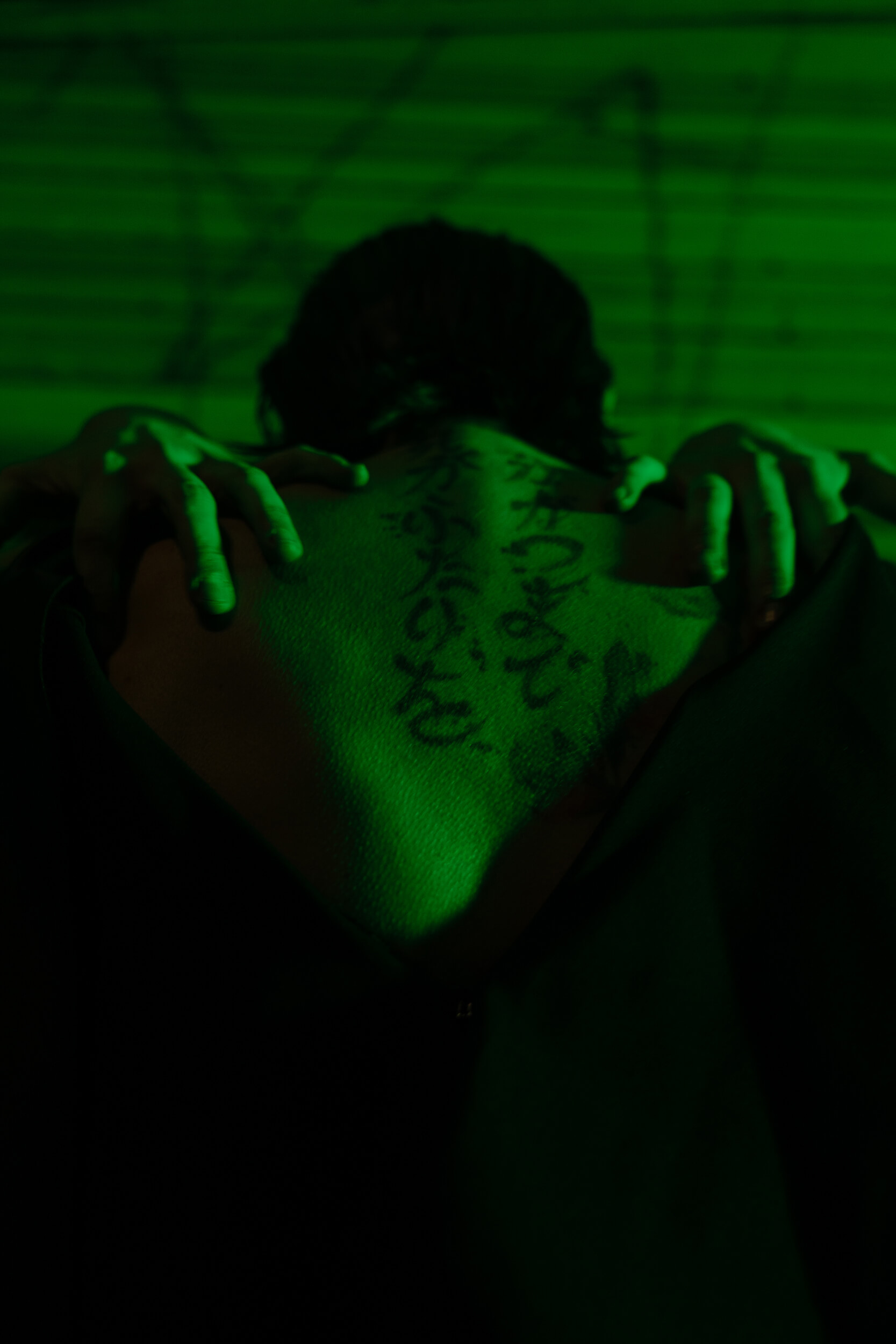
As you were saying, Eva faces a journey of growth and transformation. Is there anything about her that you feel you have carried with you even after the end of filming? Or something you learned about yourself thanks to her?
I definitely learned to react. Many times in life, when bad things happen, we find ourselves paralyzed, stagnant, we let ourselves be hit, knocked down, and we stay still for quite a while. That’s why, about Eva, I really appreciated that, despite all the bad things that happened to her and that she herself caused, she reacted, she never felt sorry for herself and she looked for a way to feel better.
As the months went by, after filming ended, I tried to do the same for myself, and this is the most important thing I learned, along with not judging myself. I learned that our first enemies are ourselves and therefore, if we stop self-judging, others will stop too. We have to learn not to care what others think, because everyone follows their own path and everyone is unique in their own way. Before Eva, the hunger to take on the world I had lost a bit, because life perhaps leads you to resign yourself sometimes, to have bad periods, but after her I got it back. This film was cathartic for me, because “the origin of the world” is precisely that chaos that destroys but recreates; after the film I destroyed a lot of things in my life, I eliminated a lot of friendships, and I realized that every time you trigger chaos, then the world works better, absurdly. We all know what is best for us, but the problem is that sometimes we are lazy, we are afraid of the future, and precisely not surrendering to this led me to become an actress at 24. I started studying acting very late, and if I had surrendered to fear I would never have done it and all these opportunities would not have come.
I understood that we deserve to be 100% happy, not halfway, and therefore we should not be afraid to destroy, because then we can always recreate.
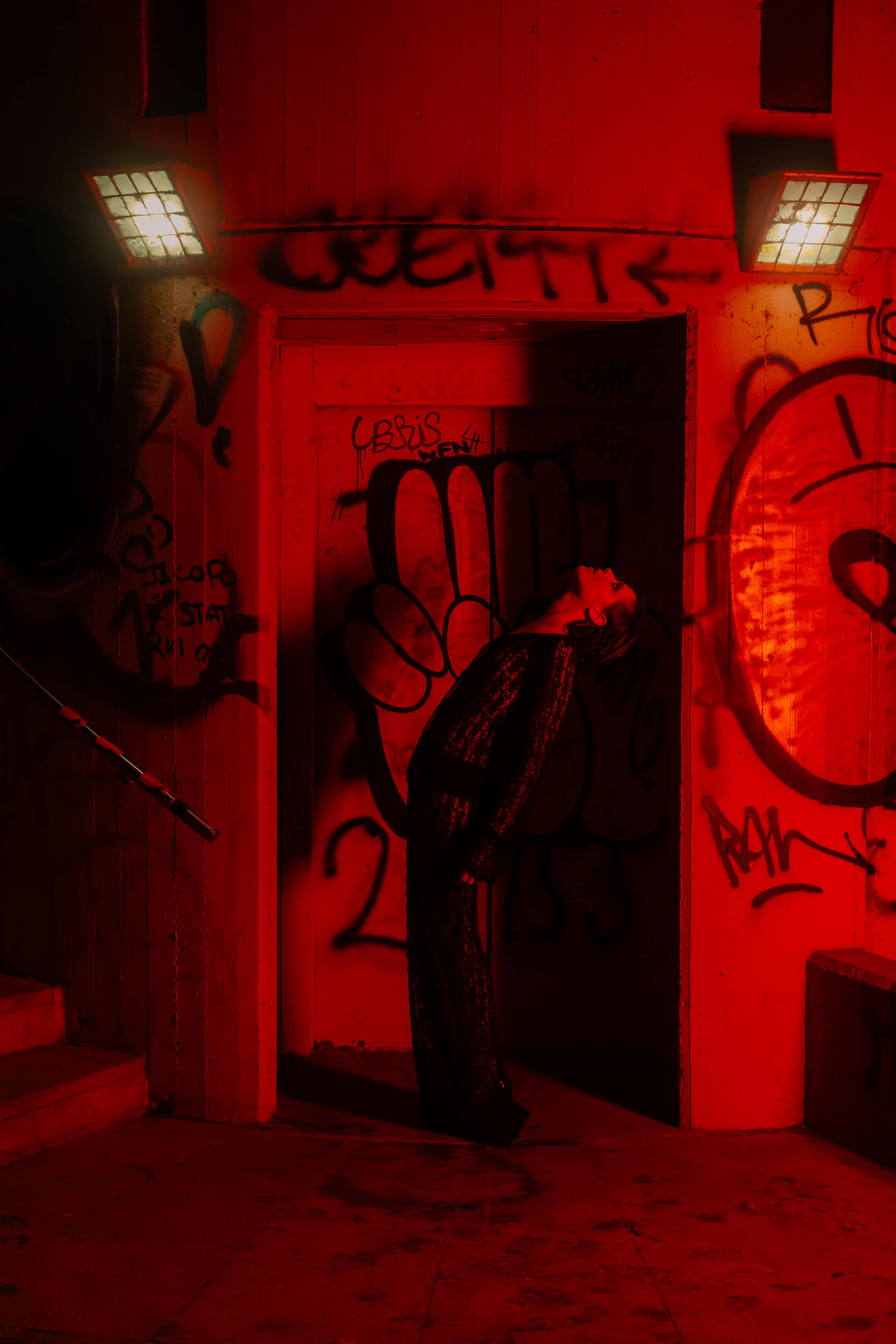
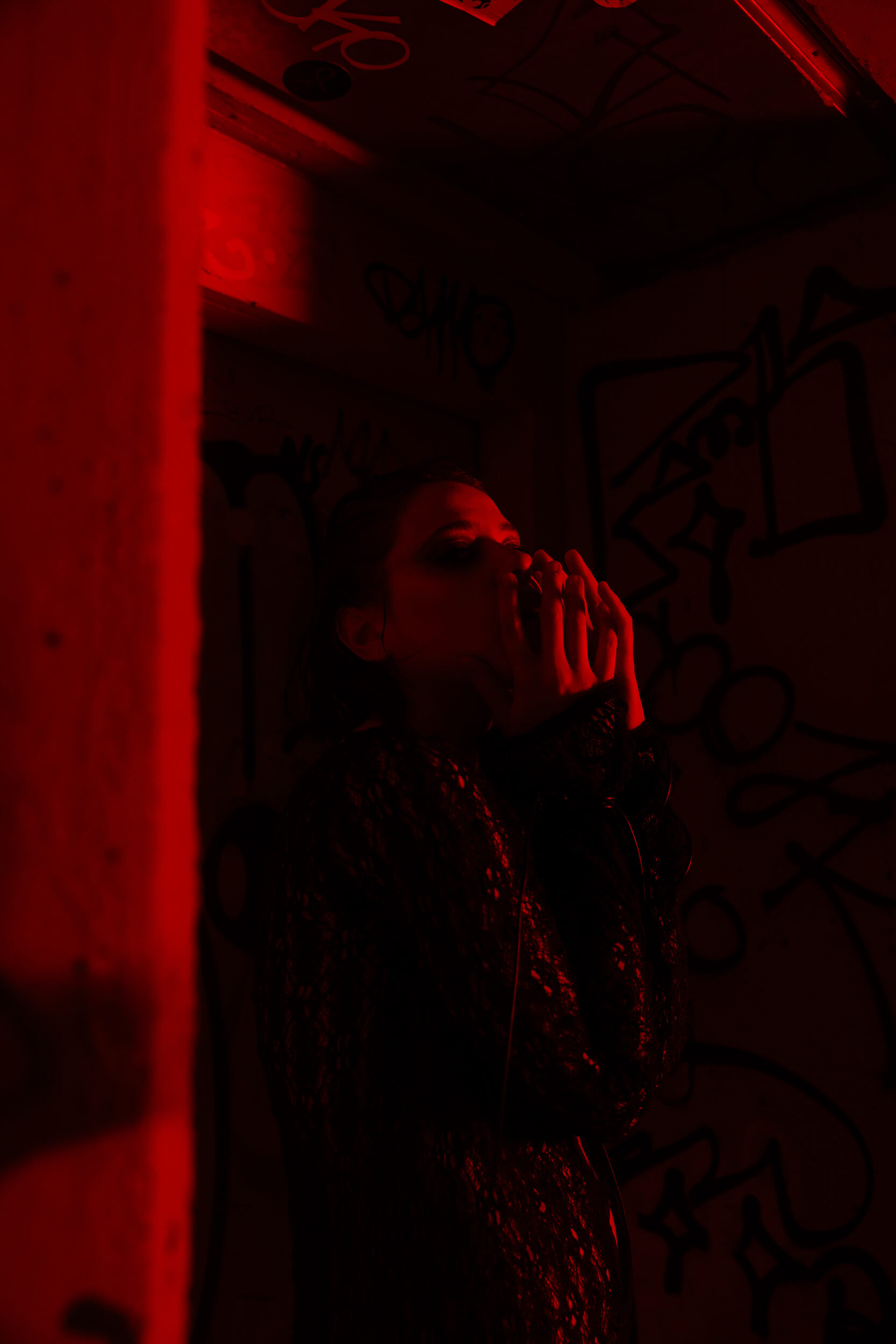
Do you have an epic fail on set to share?
All sorts of things happened with the director, with whom there was already mutual confidence and esteem. On Saturday nights we often went out together, during the filming period, and once we fell asleep because we were super tired and there are lots of videos documenting it [laughs]. Then, I remember that before shooting the sex scene, I was totally awkward. To overcome this, they made me do exercises on the grass like jumping, rubbing myself, and instead of a heartfelt, sensual and ethereal moment, it was all just very funny [laughs].
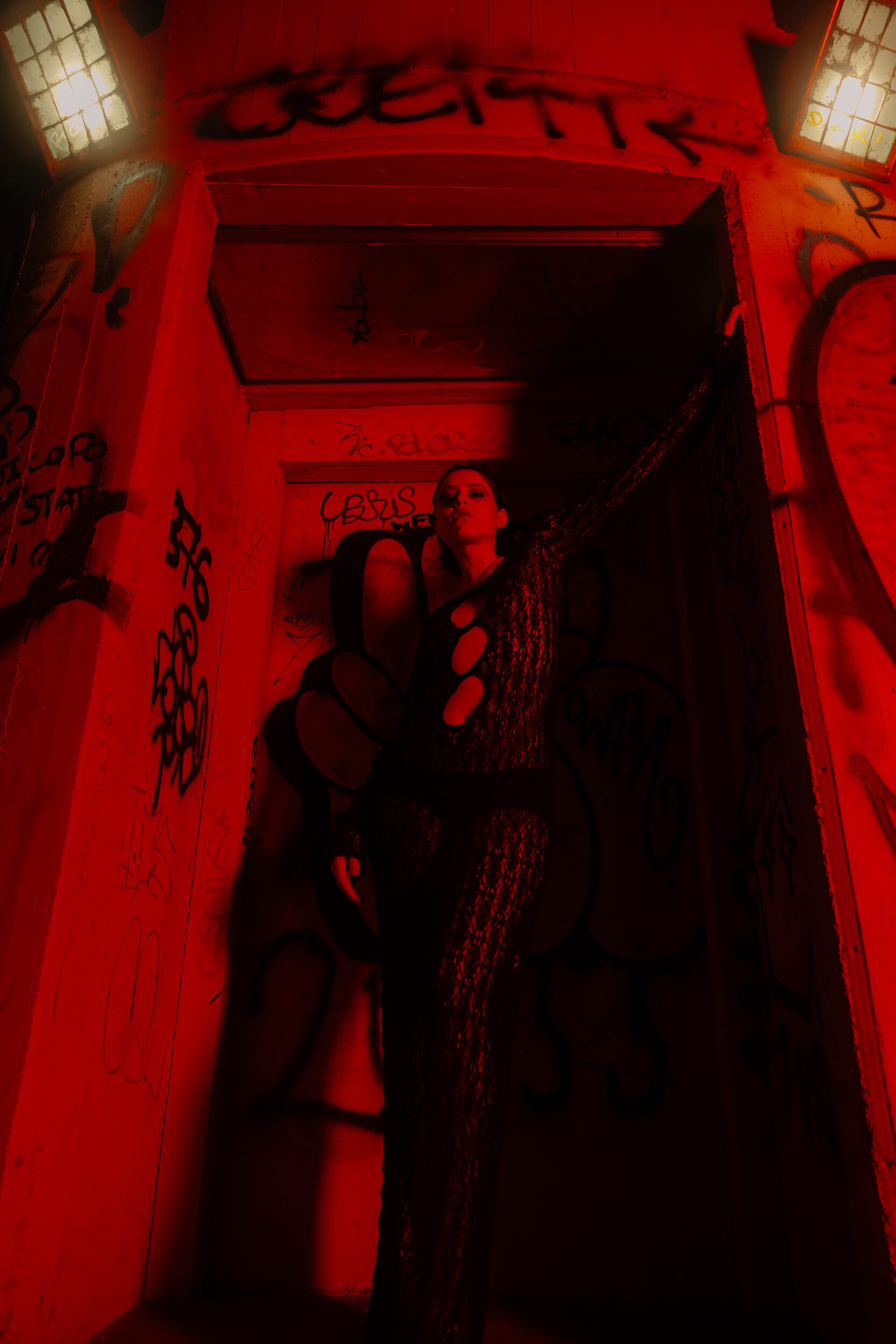
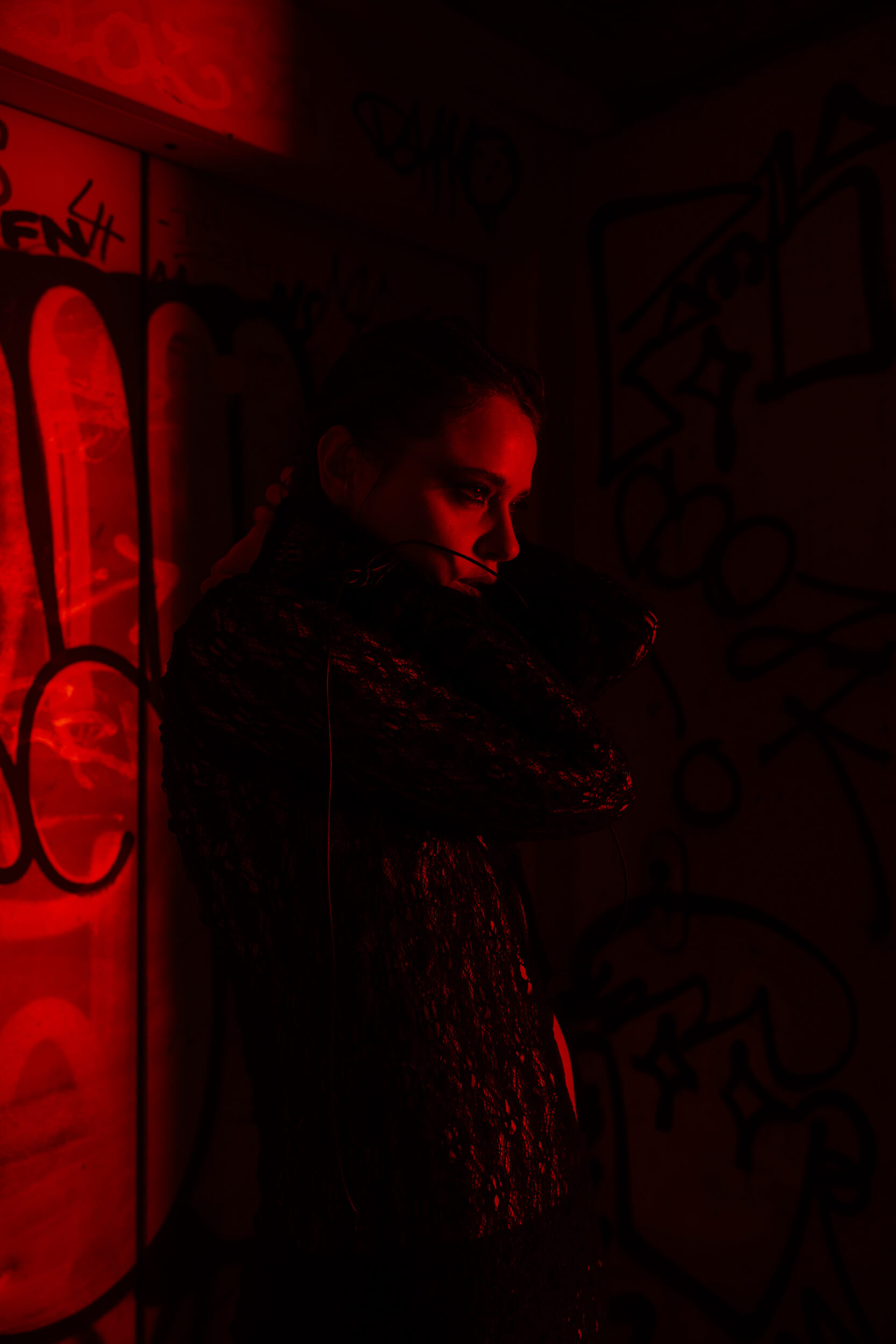
What are you watching these days?
I’m watching “Adolescence” on Netflix: amazing actors, then all in sequence shots, a beautiful series. I also just saw “L’Arte della Gioia” (The Art of Joy) by Valeria Golino, stunning, a truly powerful film. You see, I like this type of cinema, this type of stories, that leave something inside you forever. I’m also trying my hand at writing, during this period, with another actress friend of mine. We’re writing a dramatic film that talks about manipulative bonds, about guilt. You know, I like characters who maybe seem bad but aren’t that bad.
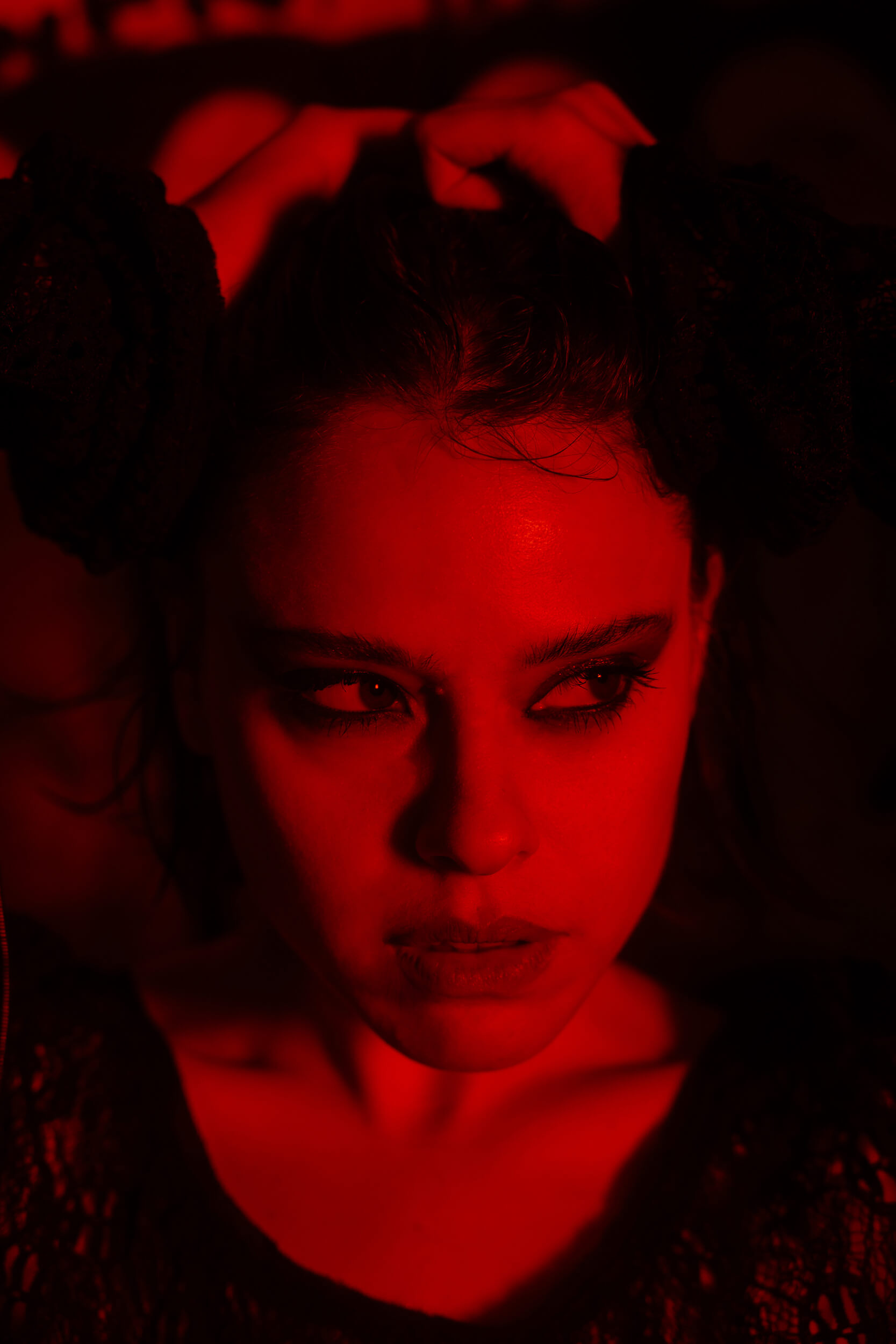
“I like this type of cinema, this type of stories, that leave something inside of you forever.”
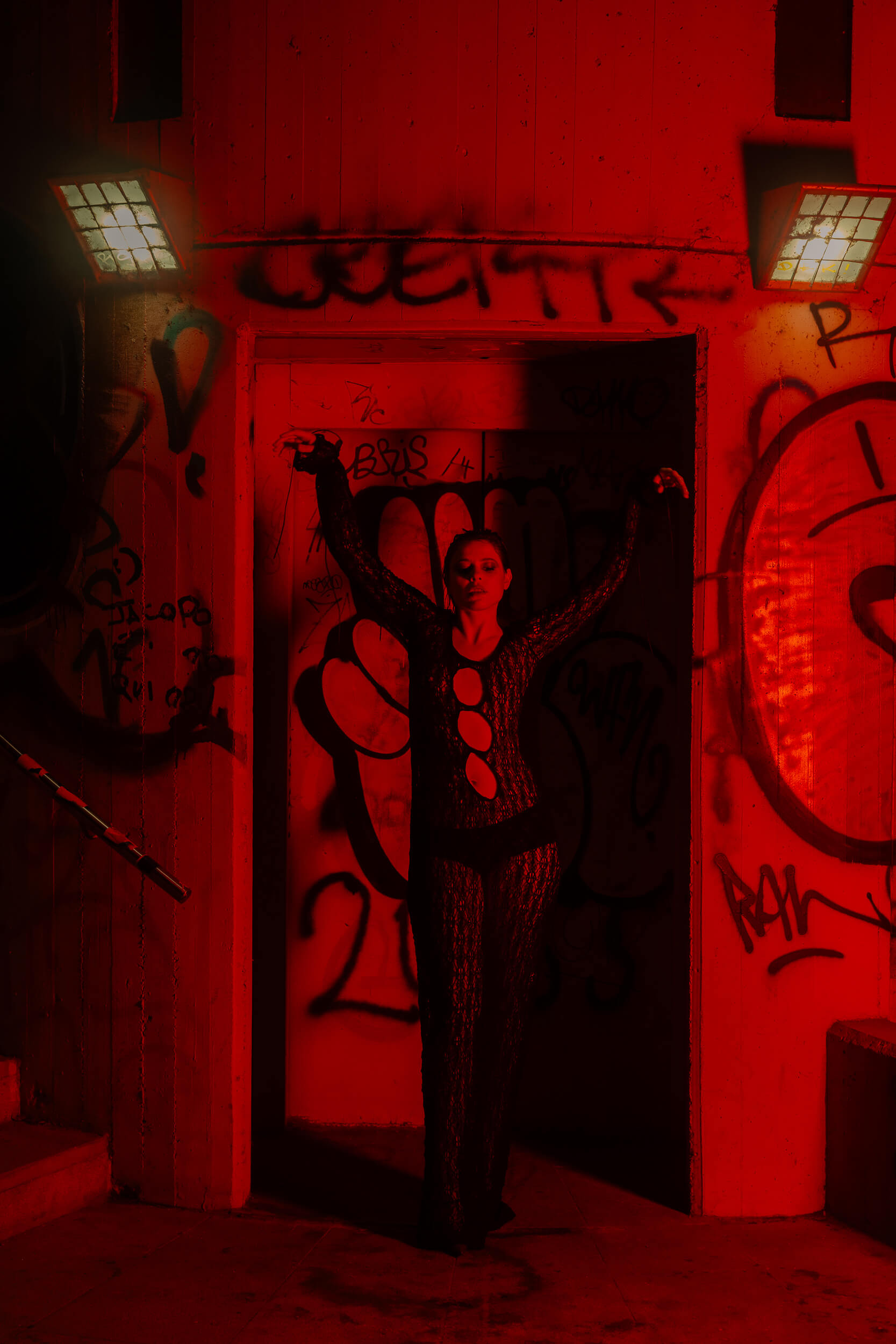
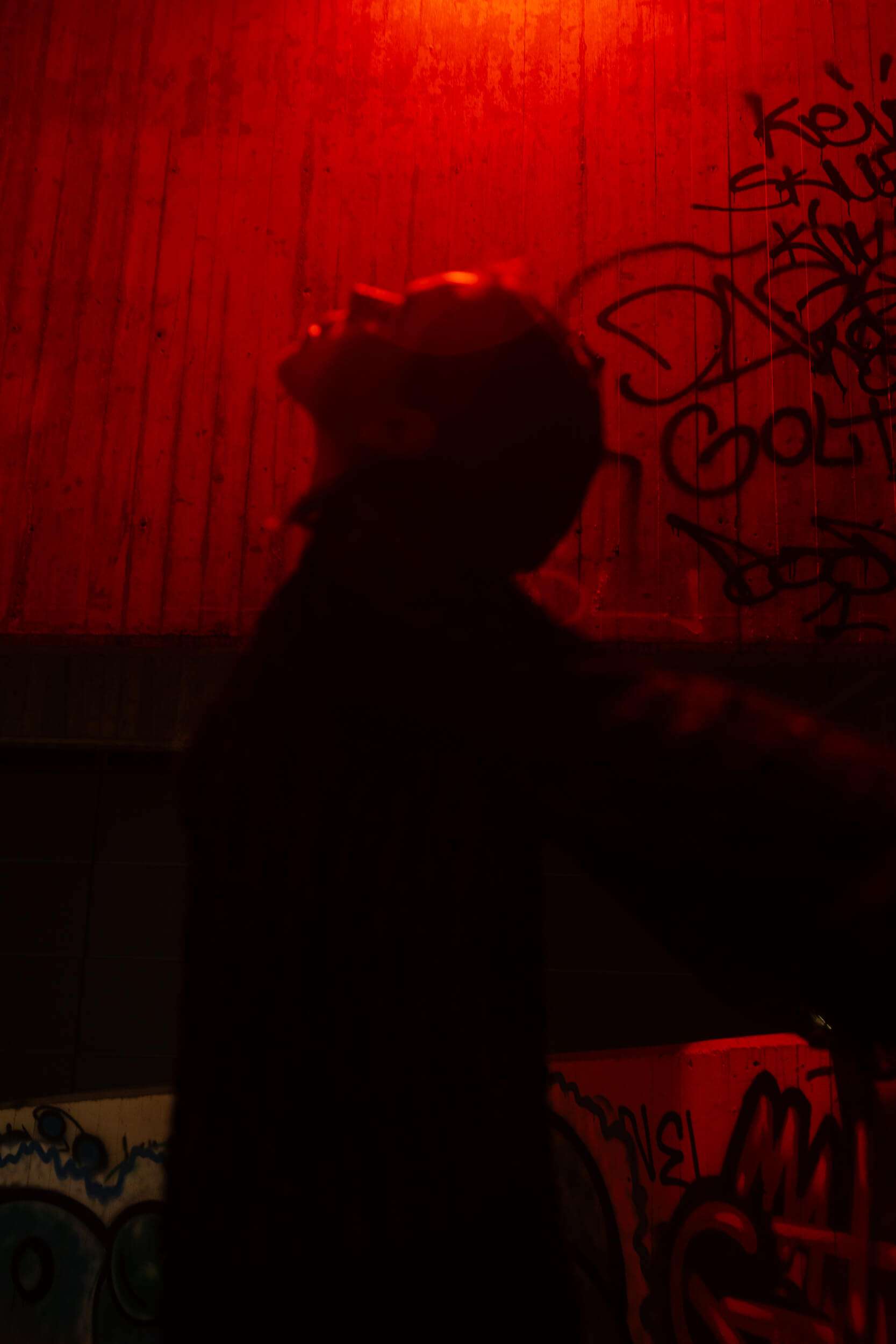
Your greatest act of courage?
Going back to what I was saying before, I’m very proud of not having been afraid, even in moments when I was about to settle, to overturn everything and start over. I had the courage to start from scratch, without ever having studied acting, without knowing what I was going to do.
Leaving alone for Rome, without knowing anyone, to try to do I didn’t even know what exactly, was the turning point of my life and I thank myself every day for having done it.
I threw myself headfirst into that world, to start I did lots of small films, I took night trains or Flixbus to do auditions and not spend too much money, I supported myself by doing music videos, continuing to work as a waitress on weekends. Until I started reading acting books that changed my life, just as the year I lived in Milan changed my life and career. You know, Rome is very stagnant, they sell you so many soap bubbles that as soon as you try to touch them they explode and nothing ever happens, while Milan is more alive from a work perspective. In Milan I did and won the auditions to play Eva, and I got back that desire to throw myself in, to do, to take and leave, which I had lost a bit.
This is my strength and my greatest act of courage, which made me discover inside me this passion, which is a hunger, a vocation, I don’t even know what to call it, but it’s that thing that makes you say: “I want to do only this and I’m willing to do anything to do it.”
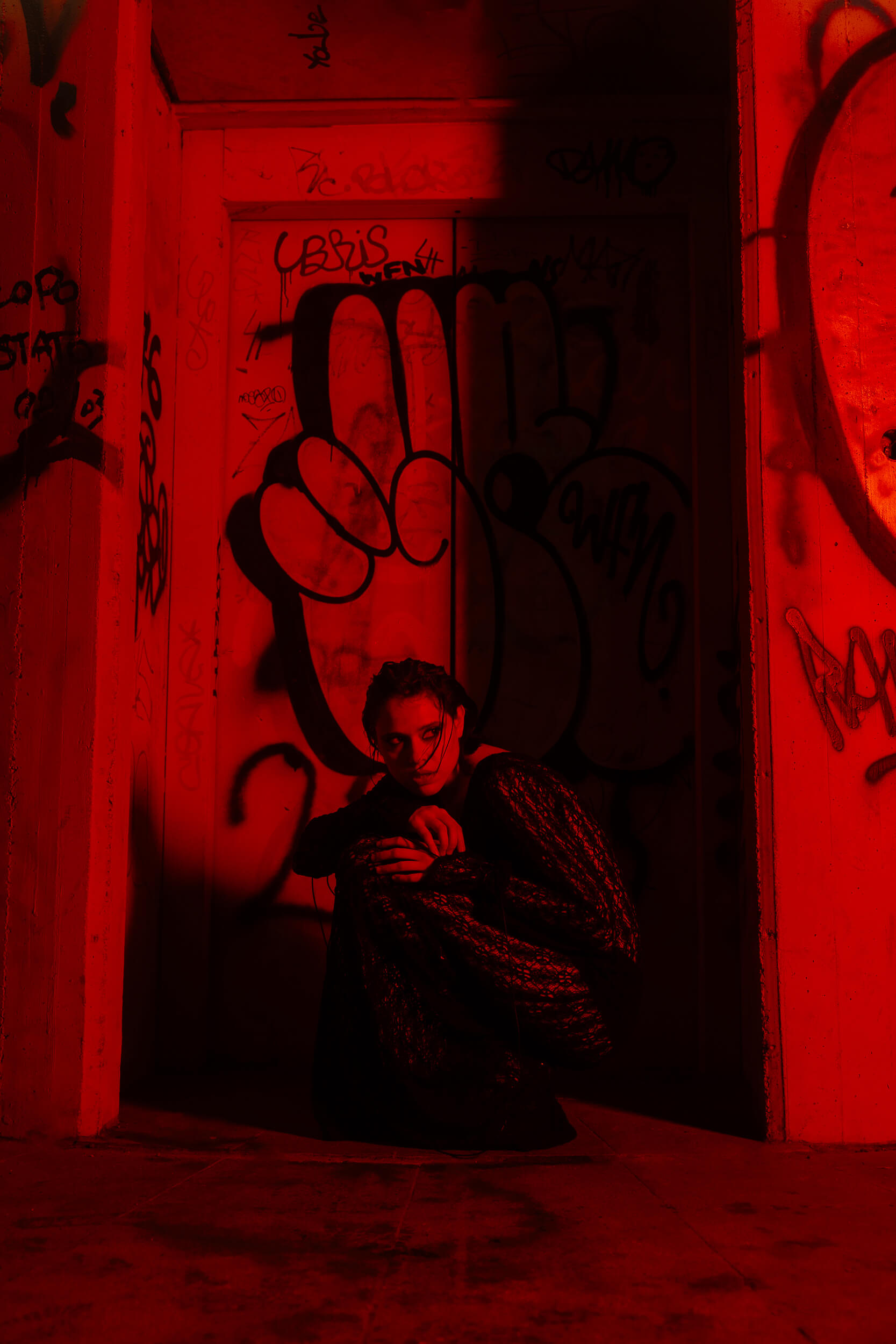
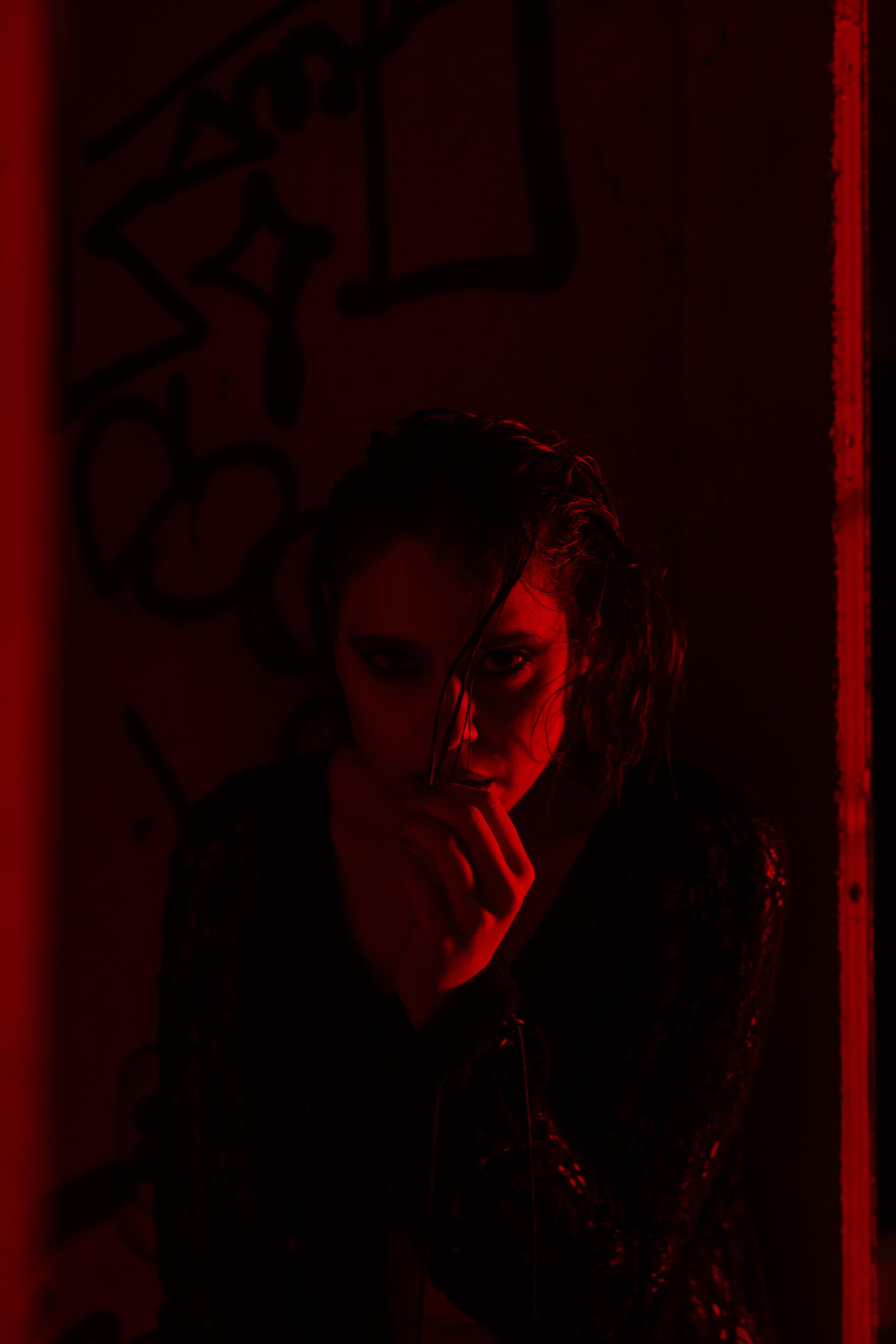
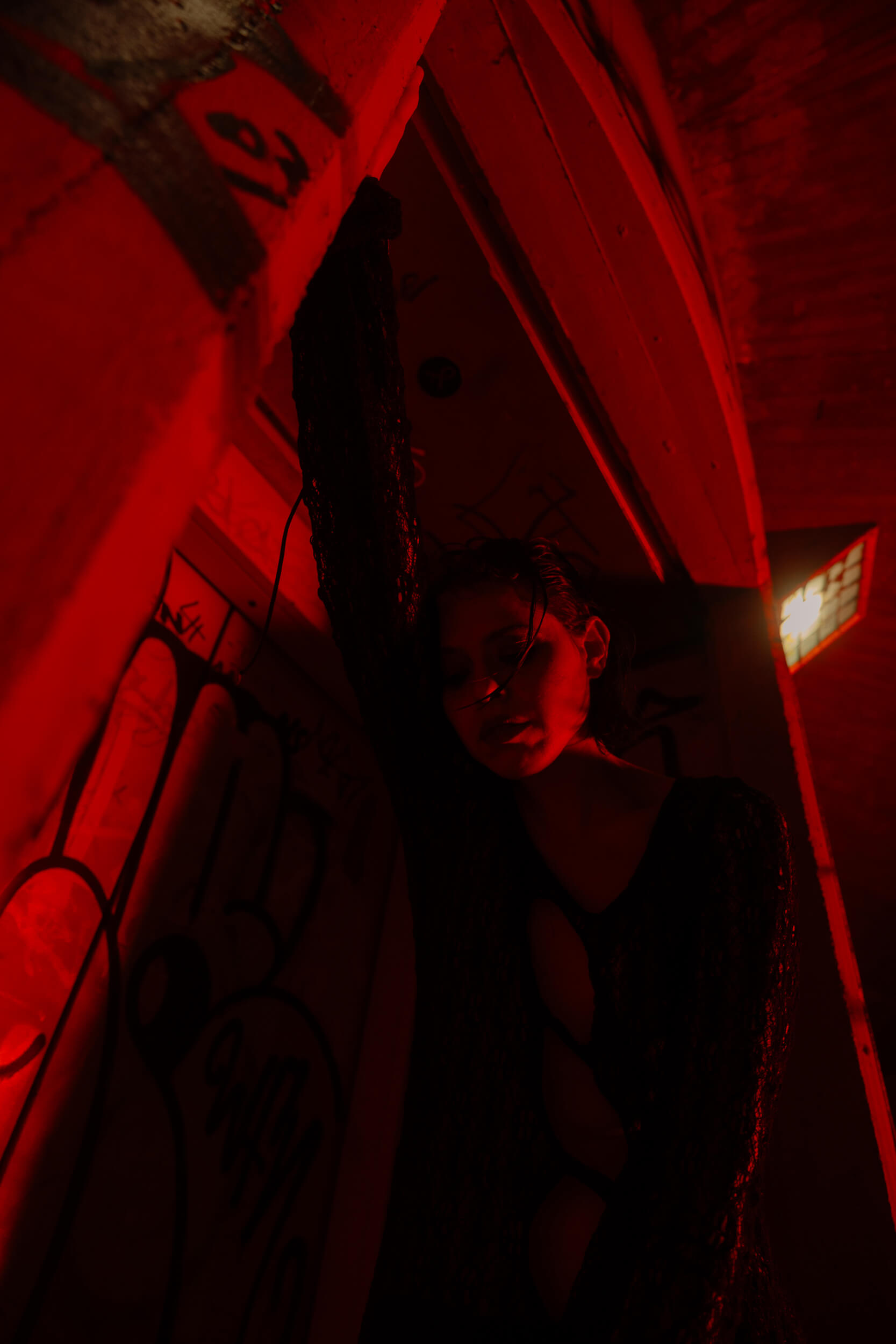
What makes you feel safe and what makes you feel more confident?
If you had asked me four months ago, I would have answered “other people,” because before I hated being alone. In fact, I recently re-examined my life and realized that, actually, since I moved to Rome, I have always had morbid friendships, I have always shared the house, I never slept alone. Now, what makes me feel safer is my home, my room, the fact that I decide when I want to do the laundry, when to go out and if I want to go out; I’ve discovered that it’s beautiful, after having always lived looking for someone to cling to because I thought I couldn’t make it on my own. Now I’ve finally learned to believe in myself, because I’ve worked a lot on myself and my spaces, my bed, my time have become my strength.
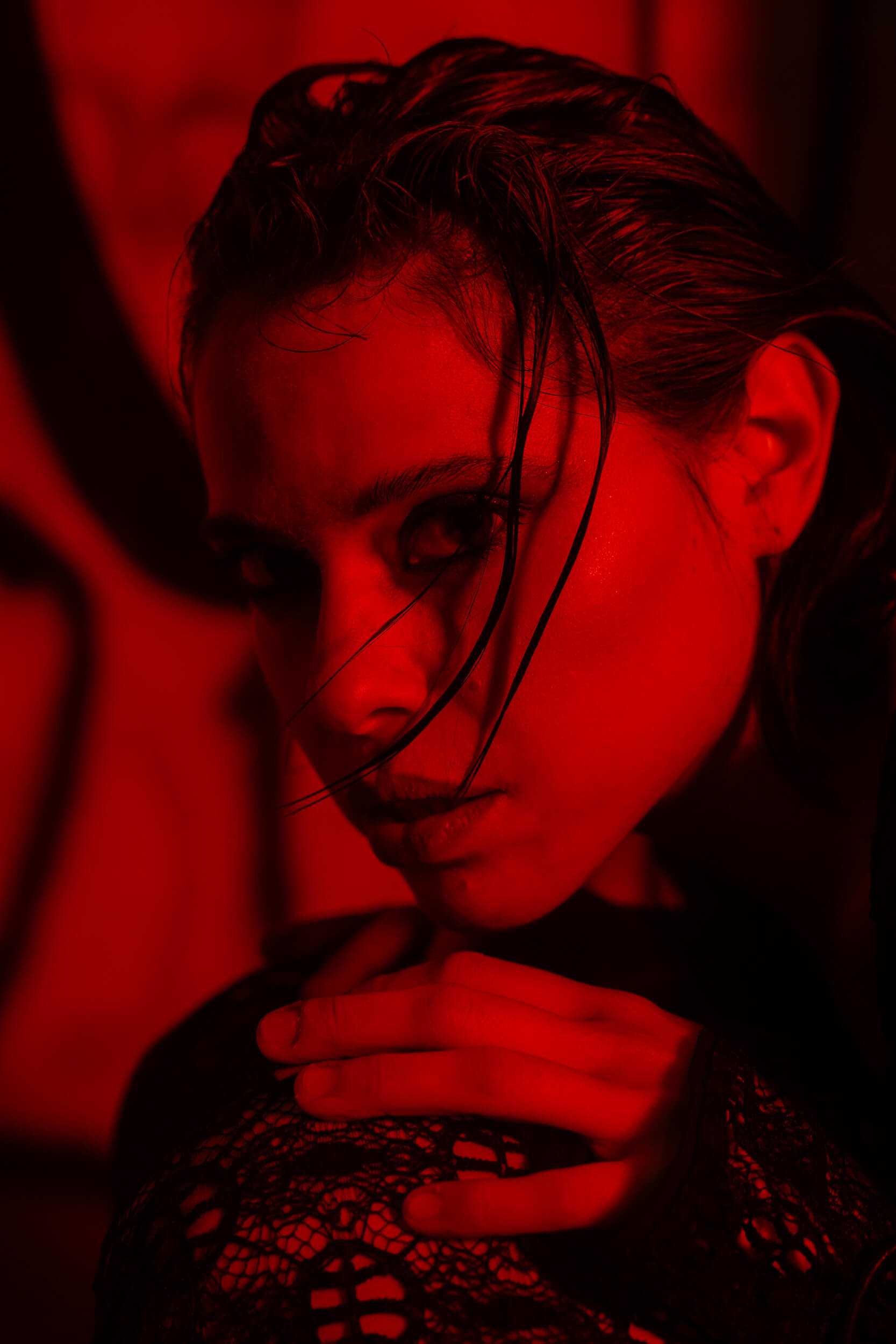
“my spaces, my bed, my time have become my strenght.”
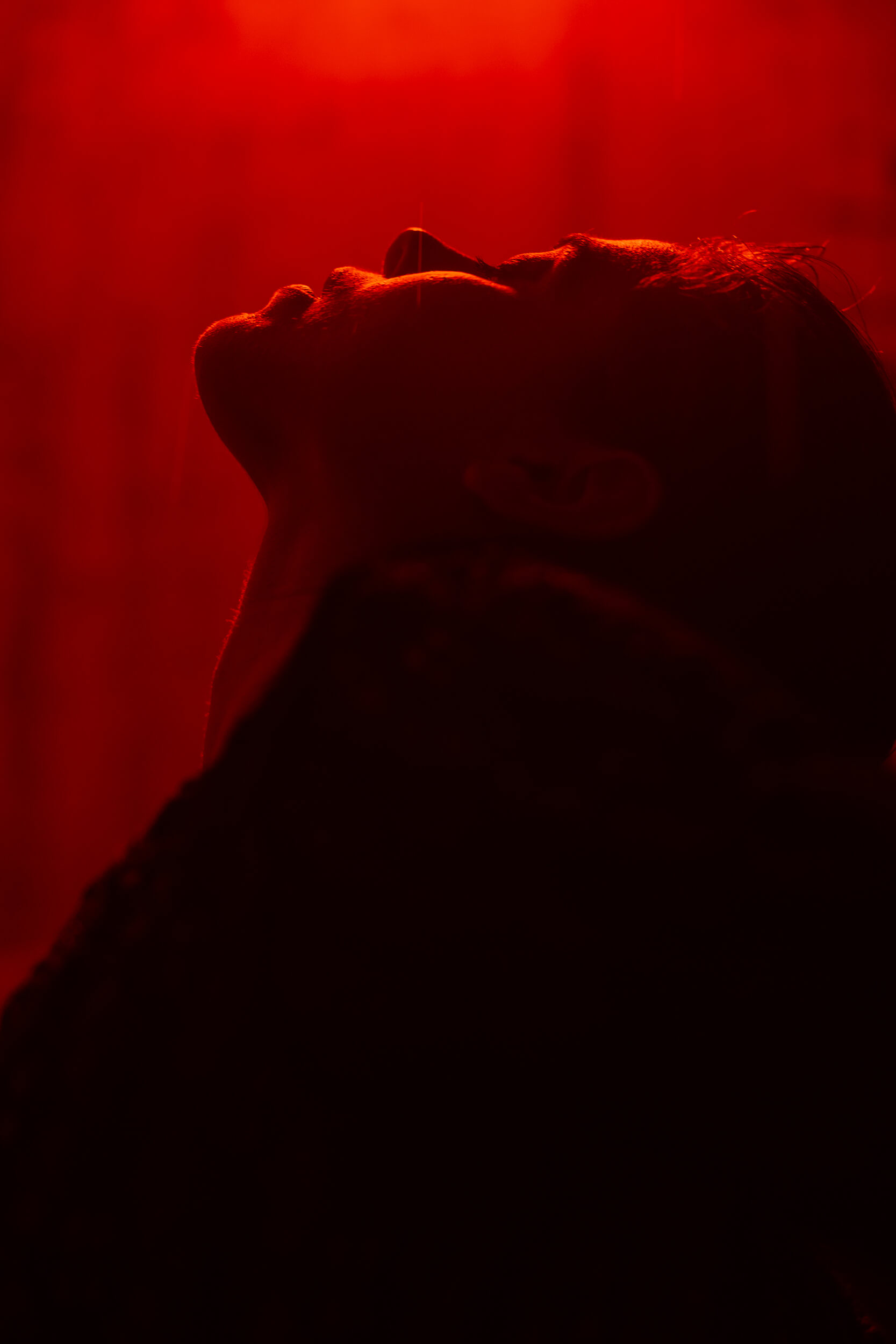
And what are you afraid of, instead?
I’m afraid of time passing. Having started this job late, I feel it a lot, and that’s why I always load myself up with so many commitments, because I’m afraid of being late. Maybe, though, this fear is also my strength, because it has pushed me to run perhaps even faster than others.
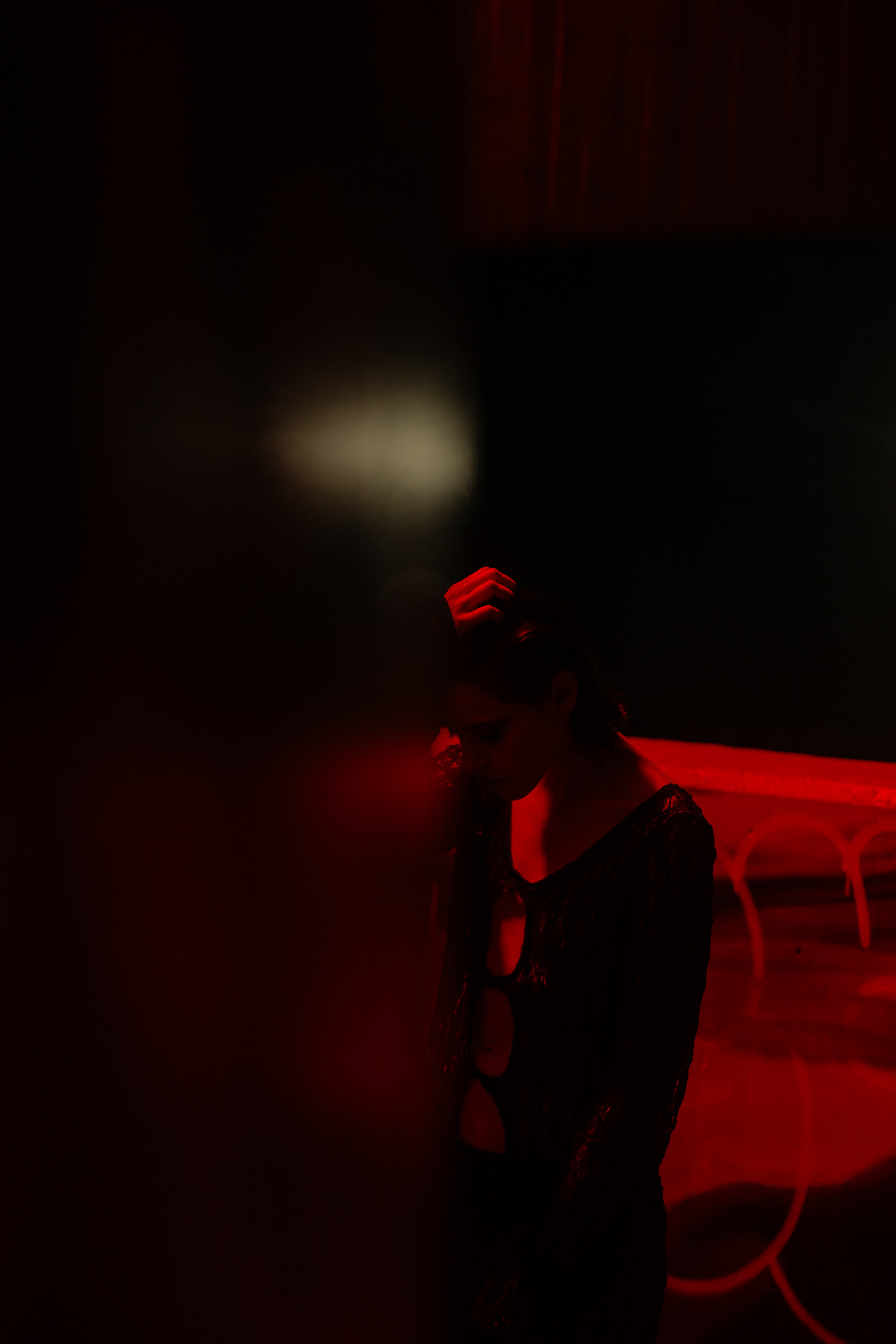
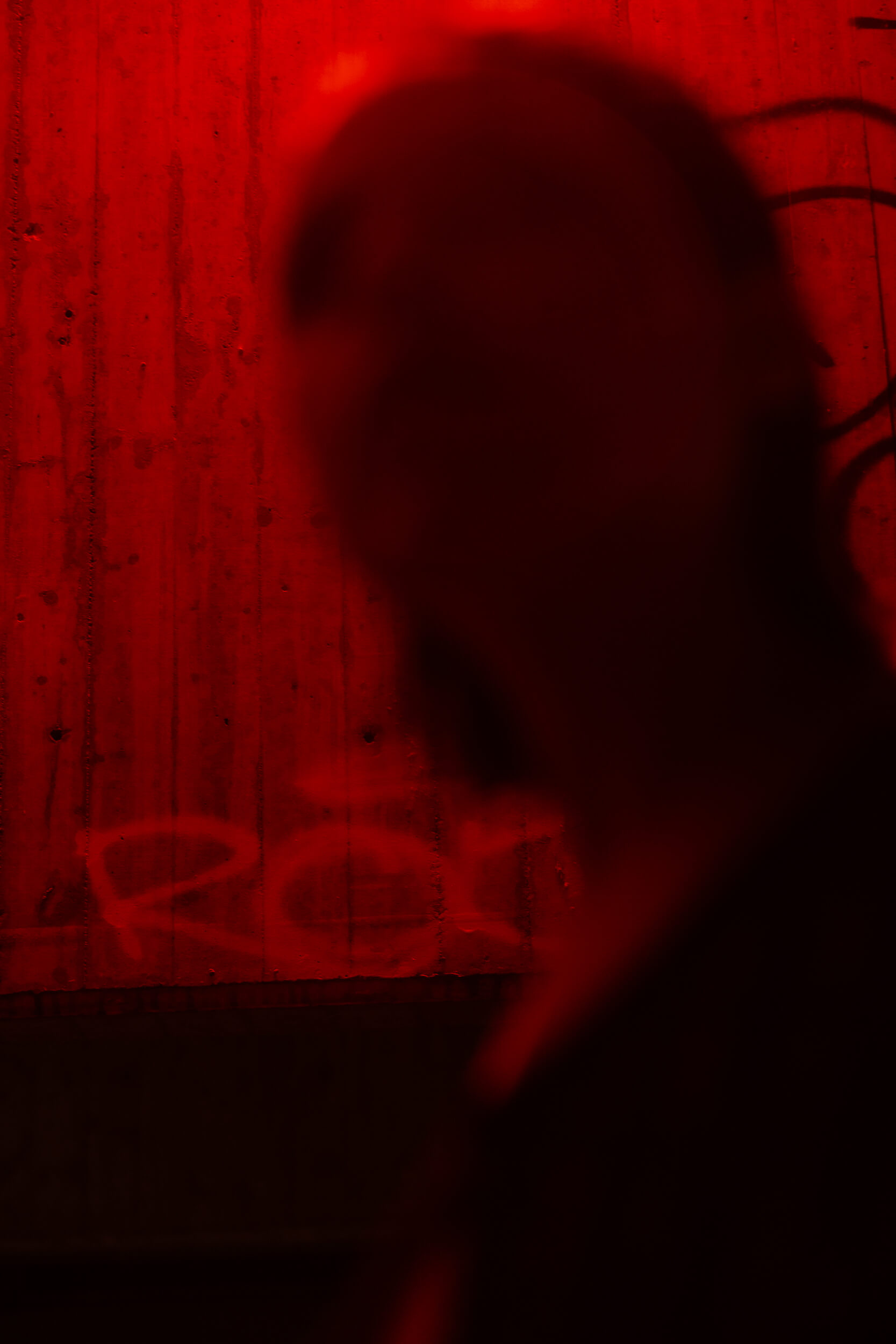
What does it mean to you to feel comfortable in your own skin?
I’ve never been very comfortable with my body, but acting has helped me a lot. I suffered from eating disorders, I didn’t like myself, I was bullied as a child, they called me “Ugly Betty”; despite the fact that over the years some small flaws I had as a child have disappeared, I still never felt beautiful. On stage, however, I feel beautiful, because I feel useful, I feel that I’m doing something with myself. Obviously, I can’t be on set every day, as much as I’d like to, so something that’s helping me a lot when I’m not acting is having a routine that includes, for example, waking up early in the morning and having a certain discipline, which the acting school is also teaching me. Something is changing; in fact, for example, I’m always without makeup and I don’t care, I don’t go out every night and I drink little, and not because I force myself, but because it’s a natural consequence of my productivity, because I have better things to do all day. So, without giving myself rules, but giving myself a routine, everything has gradually settled, including feeling better about myself. It’s still an evolving process, because I work in a world where there’s a lot of competition, a lot of ups and downs, but I try to commit myself and focus on my abilities, to work on them, and dedication is fundamental. Then, of course, I will always be a somewhat tormented soul, because it’s part of my nature and my art, and that’s good, because if I were completely resolved, what would I have to say?
However, I find it very important to have solid points to respect, which make you feel that you’ve earned the weekend even more when it arrives and make you appreciate it even more.
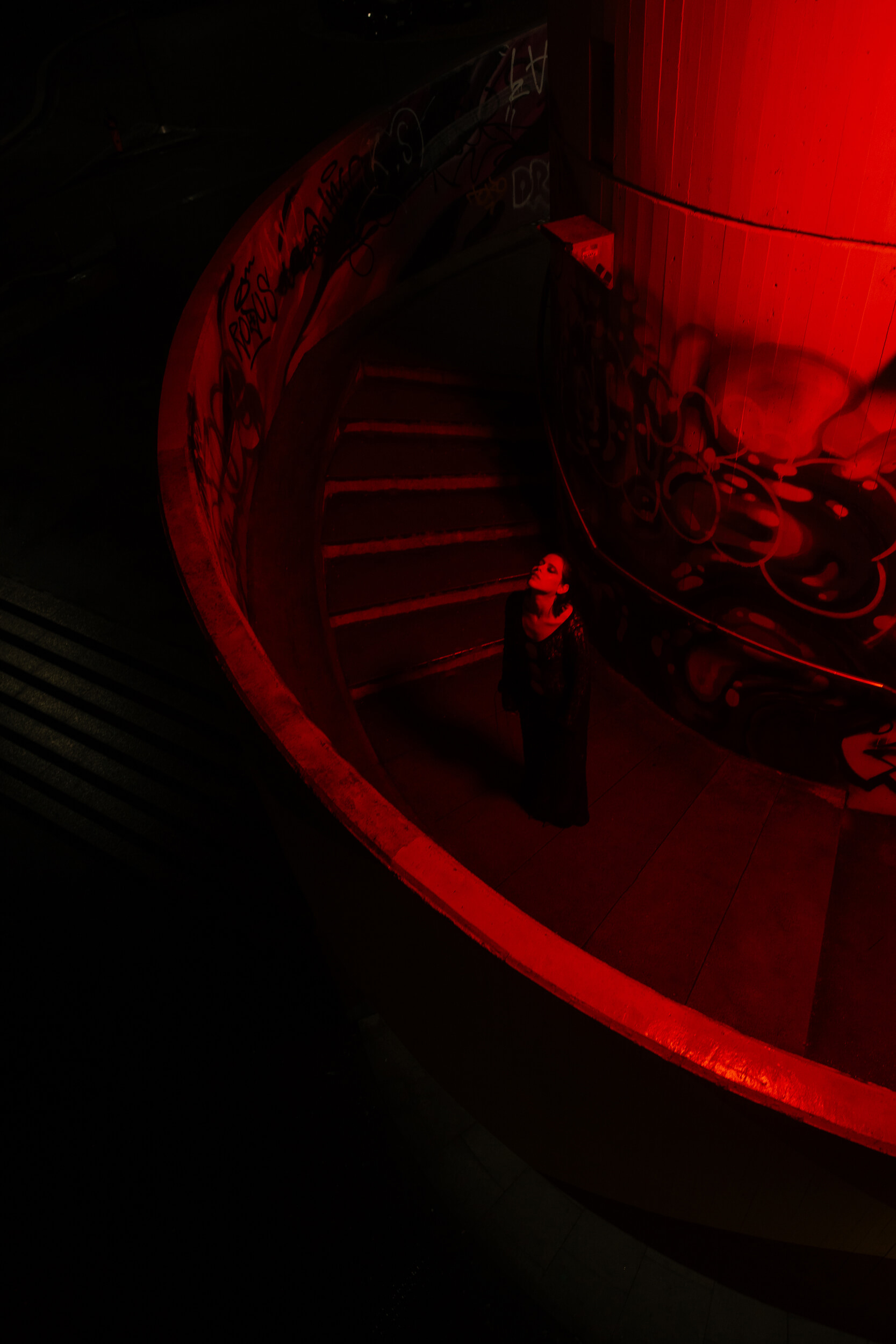
What is your happy place?
I really like the sea in winter, it makes me feel at peace with myself, but also the rain, that beating rain whose loud sound enters your head. These two phenomena perhaps represent my two personalities: I am Gemini with Capricorn rising, so I have these two opposite souls inside me; I fought a lot for one to prevail over the other, but I understood that it is in their coexistence that I feel at peace and complete, without denying any part of myself.
So, I like the calm of the sea in winter, with its sweet melancholy that makes me have the deepest and most intimate thoughts, but at the same time I am fascinated by the rain, with its strength and its charge. Without both I wouldn’t be me.
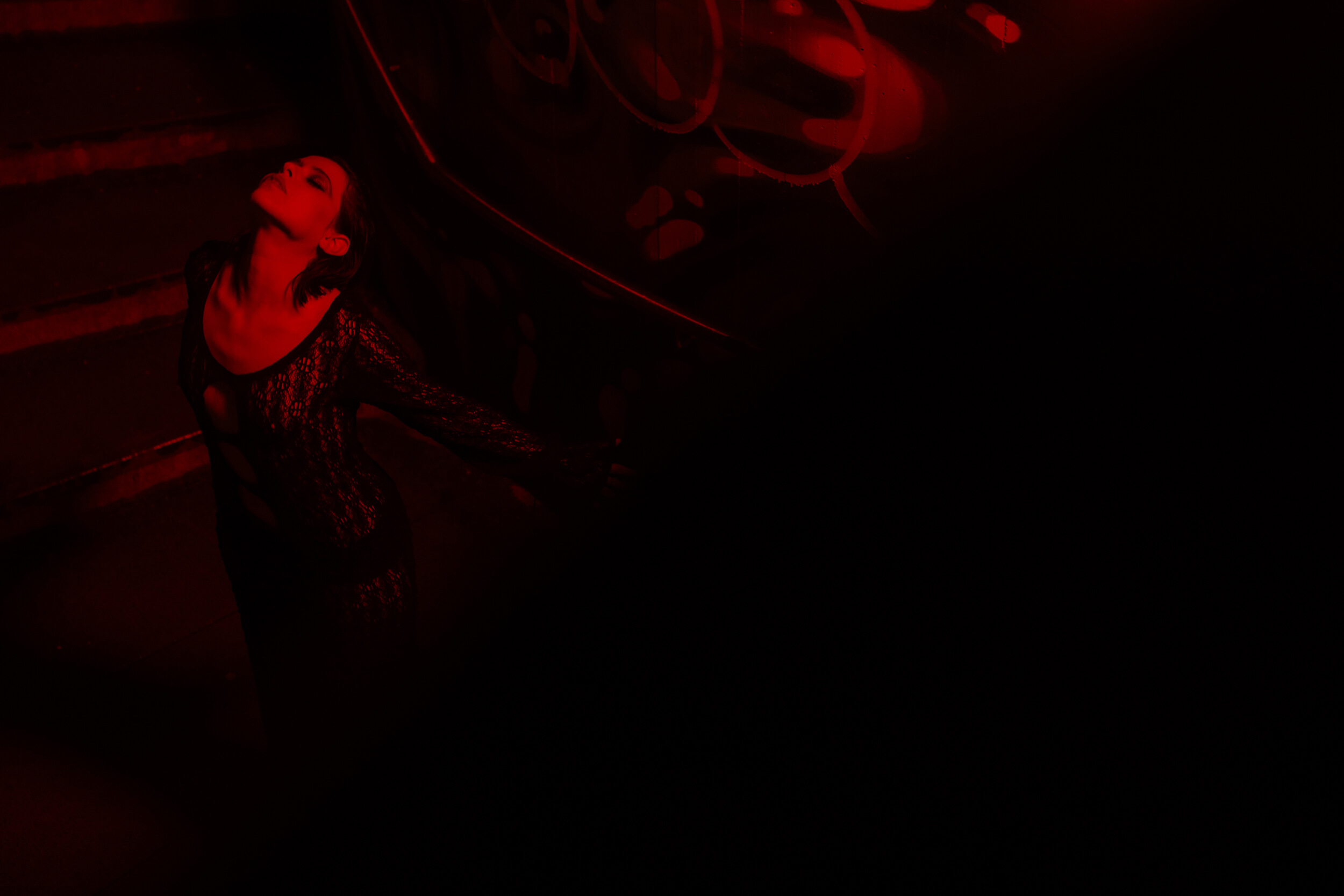
Photos & Video by Johnny Carrano.
Styling by Alex Sinato.
Assistant Stylist Alessia Di Russo.
Makeup & Hair by Mattia Andreoli.
LOOK 1
Total Look: CHB – Christian Boaro
Shoes: Casadei
LOOK 2
Total Look: Sportmax
LOOK 3
Total Look: The Nour
Shoes: Casadei

